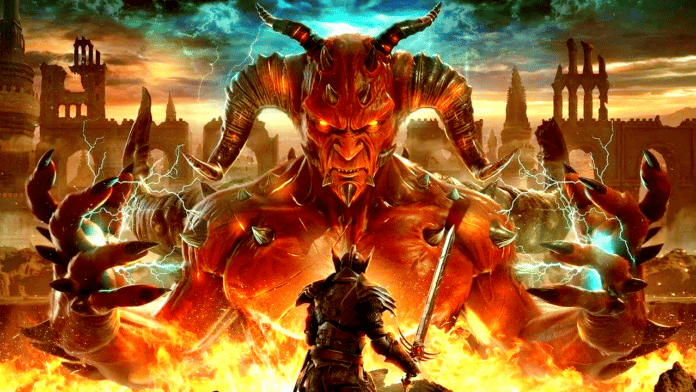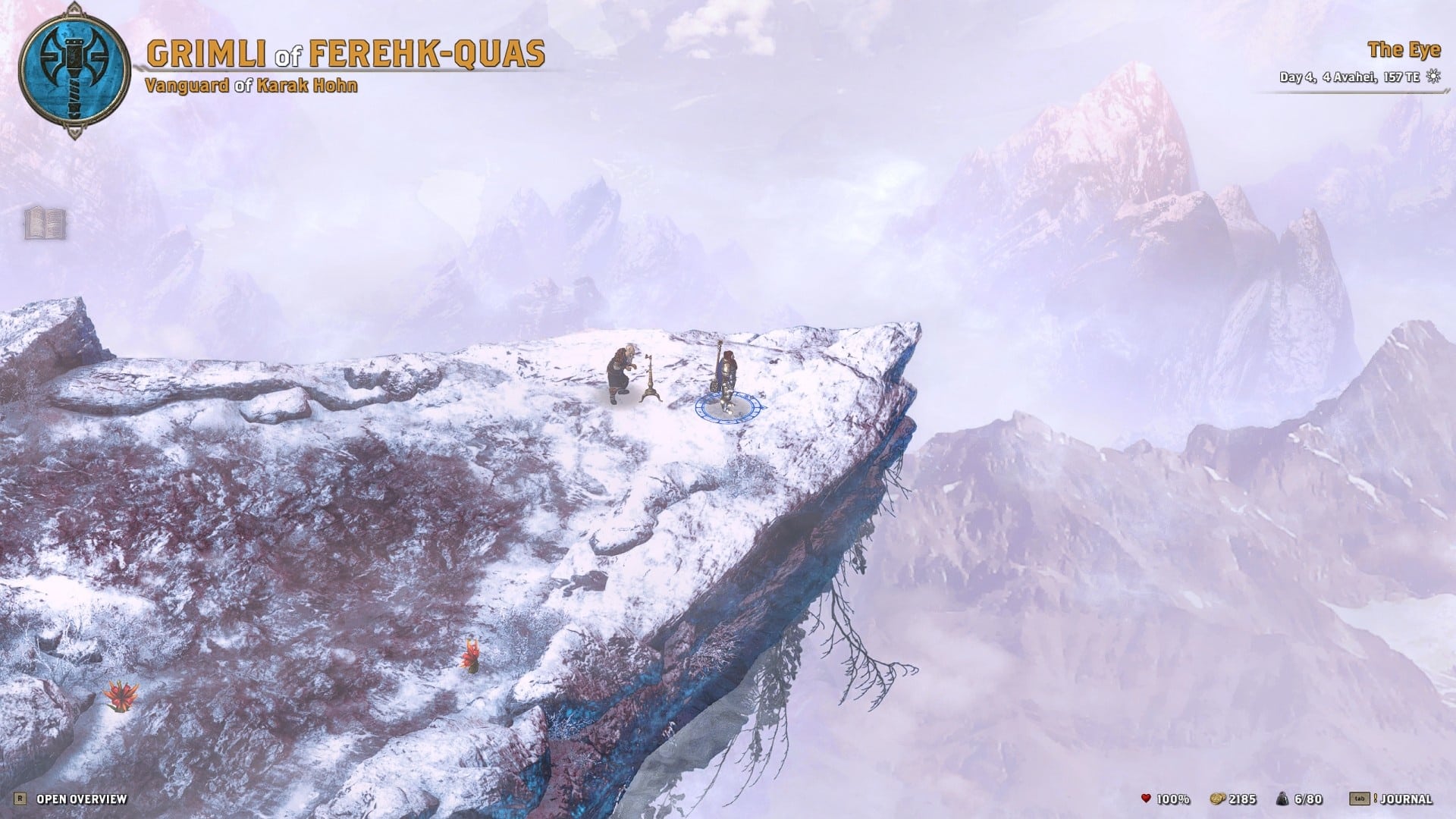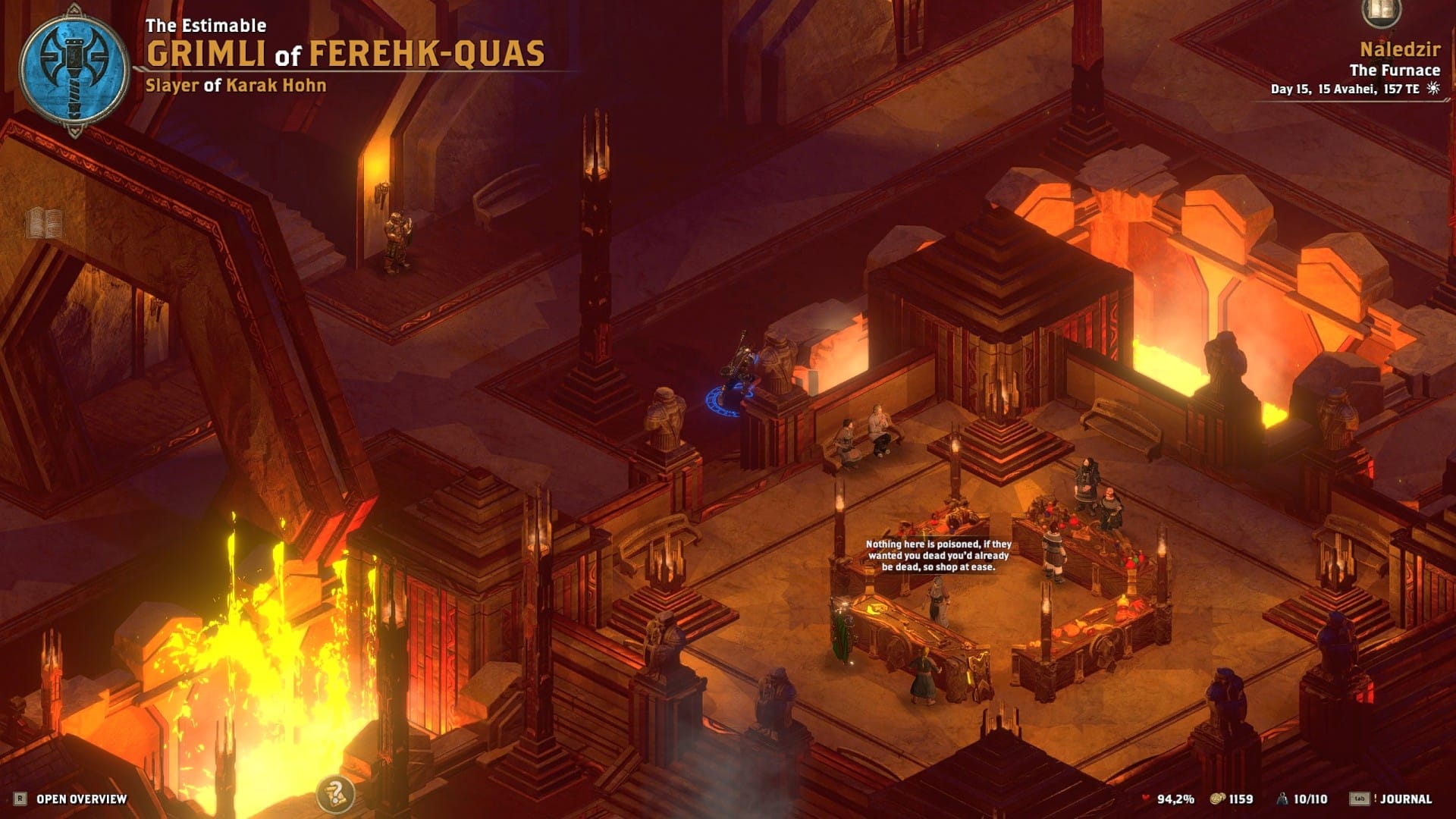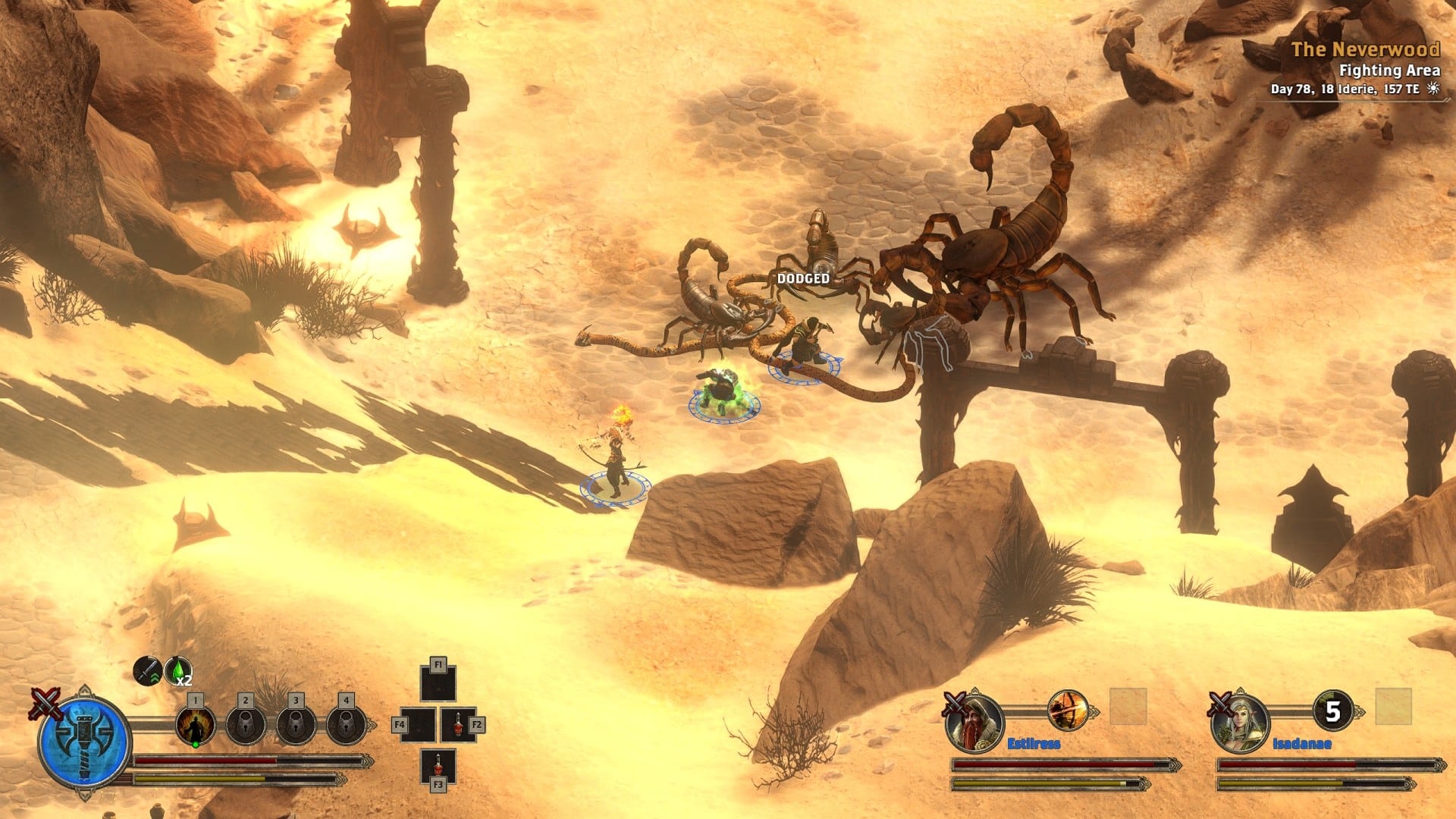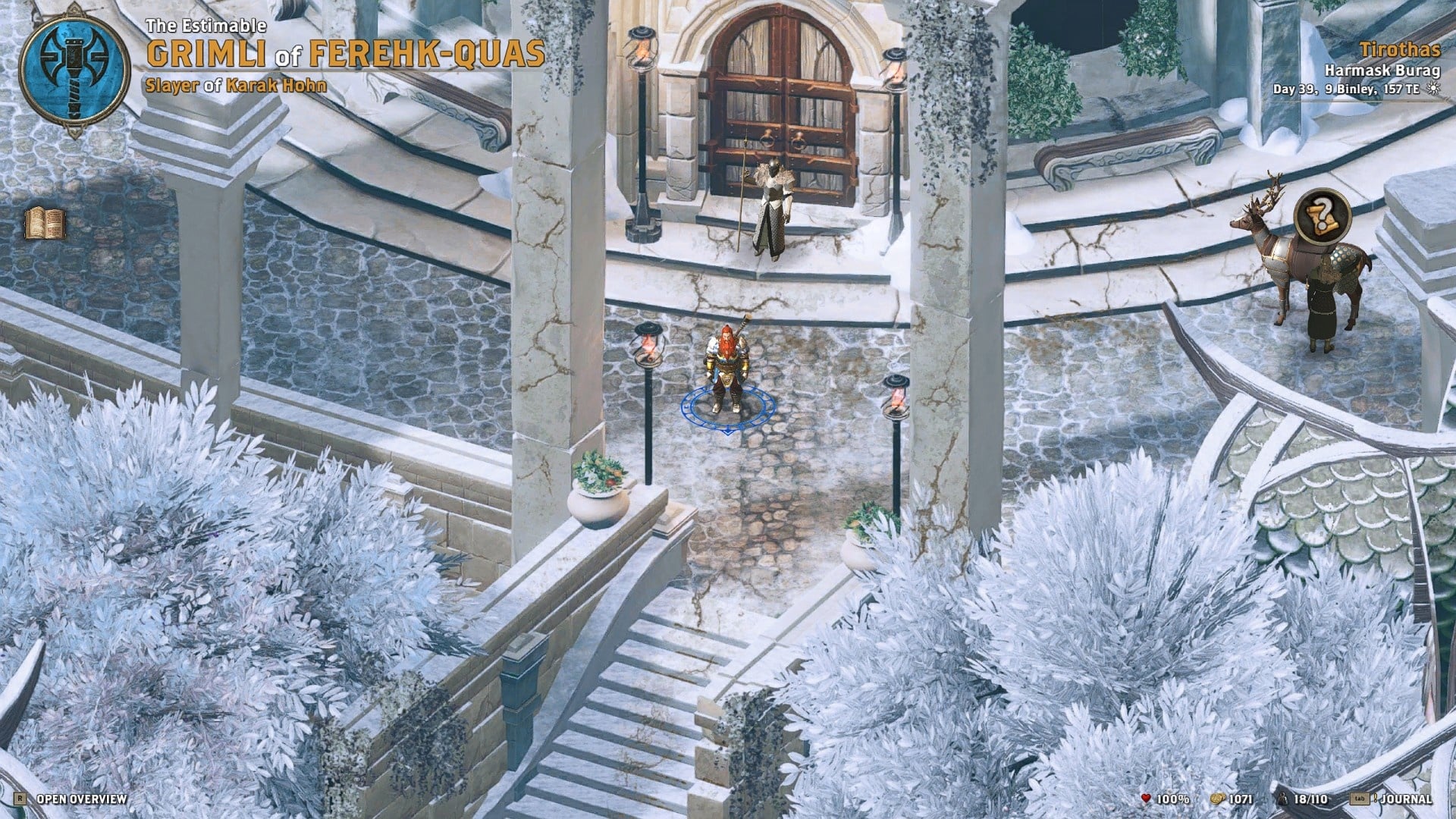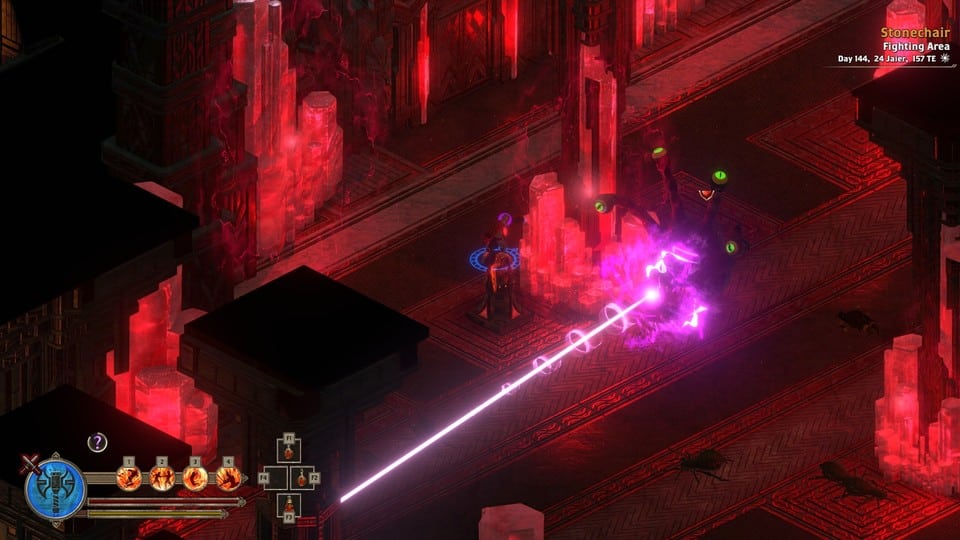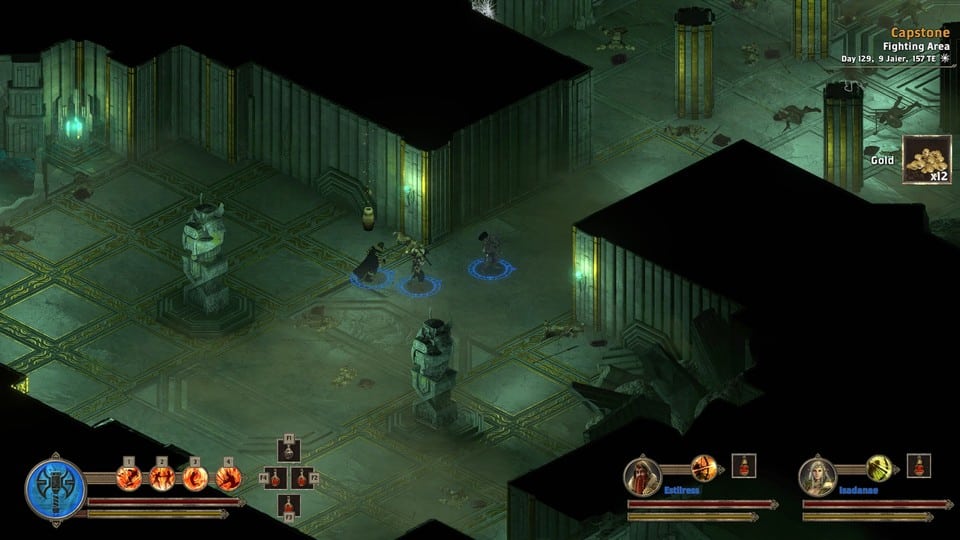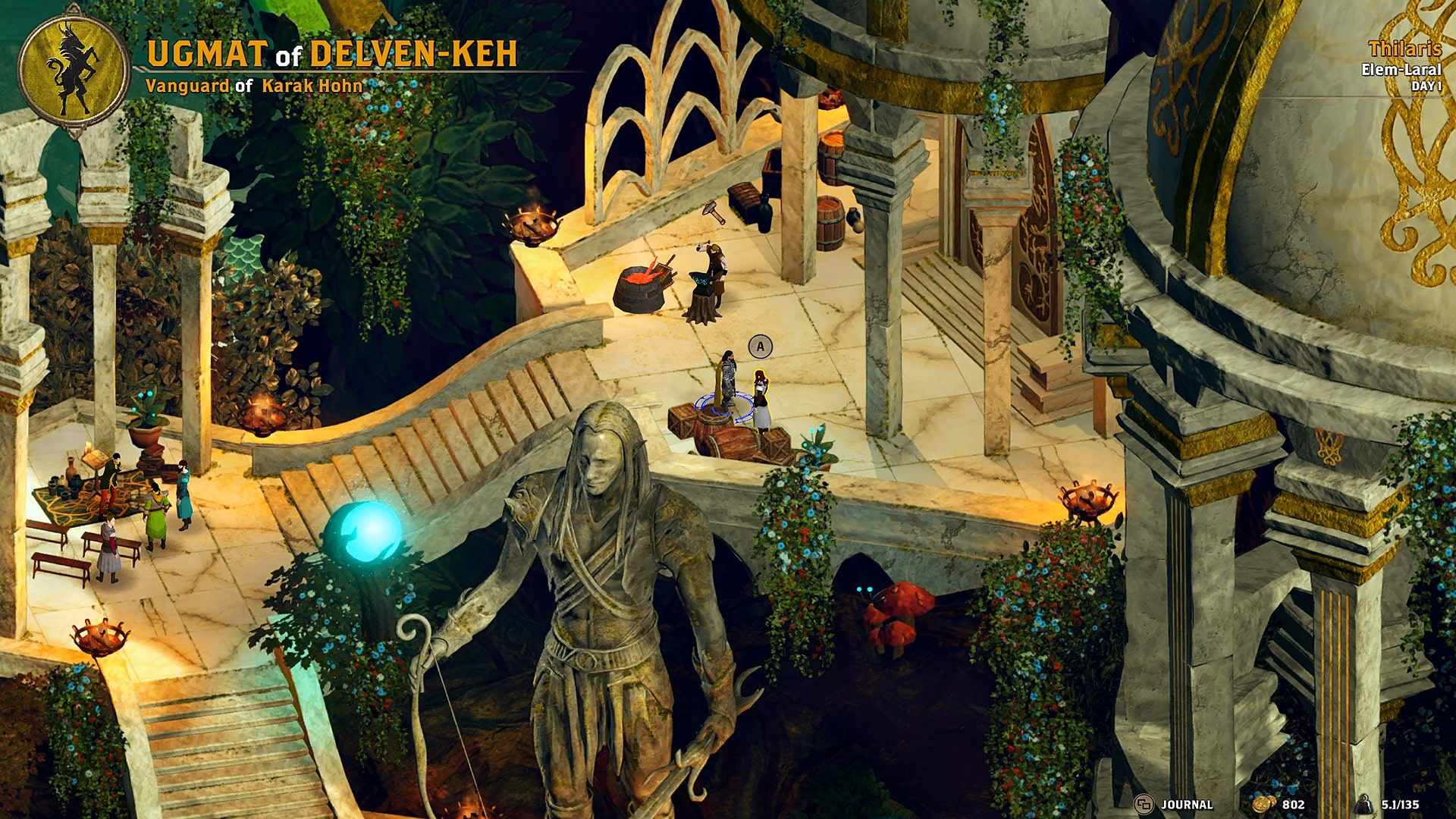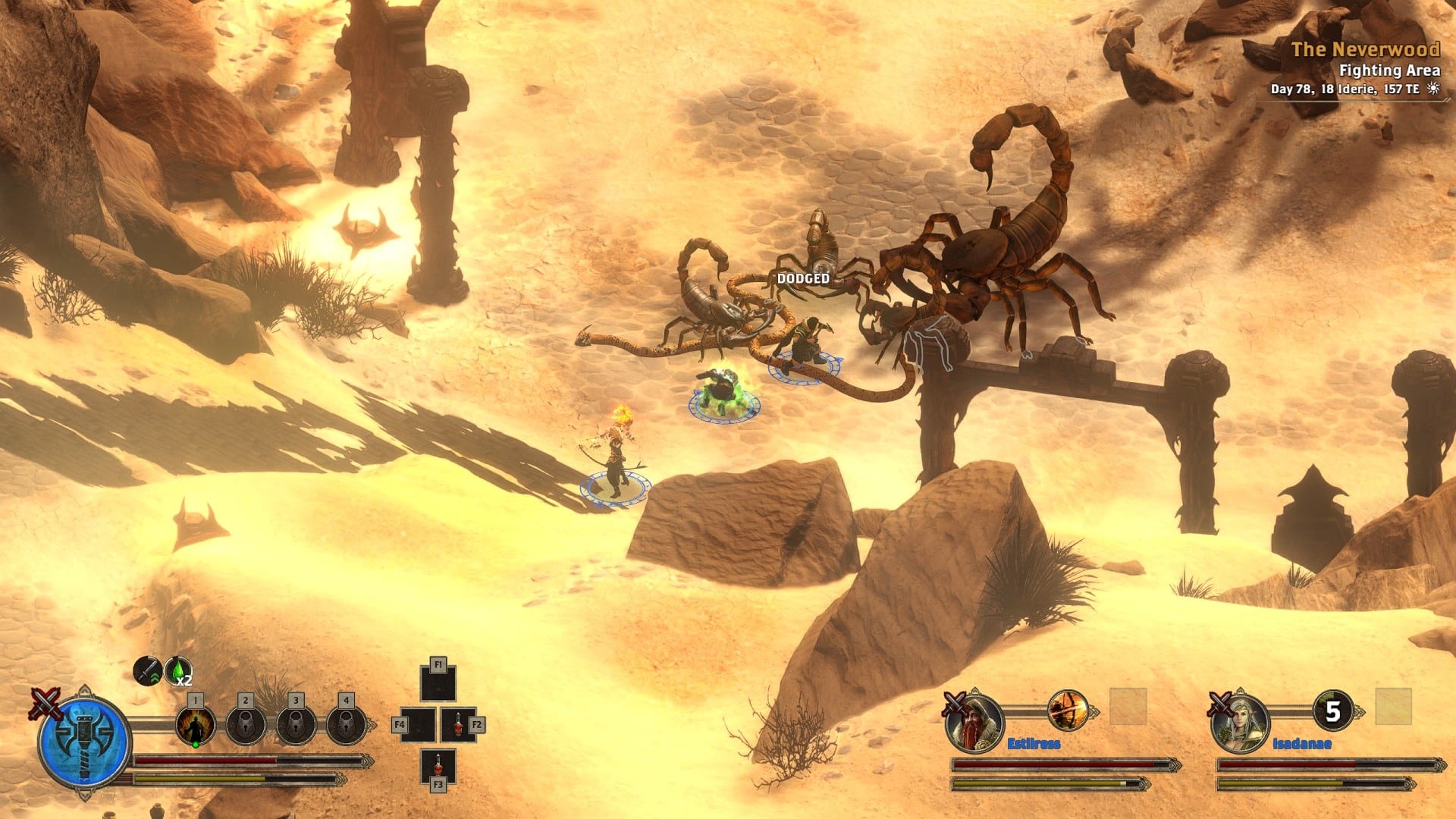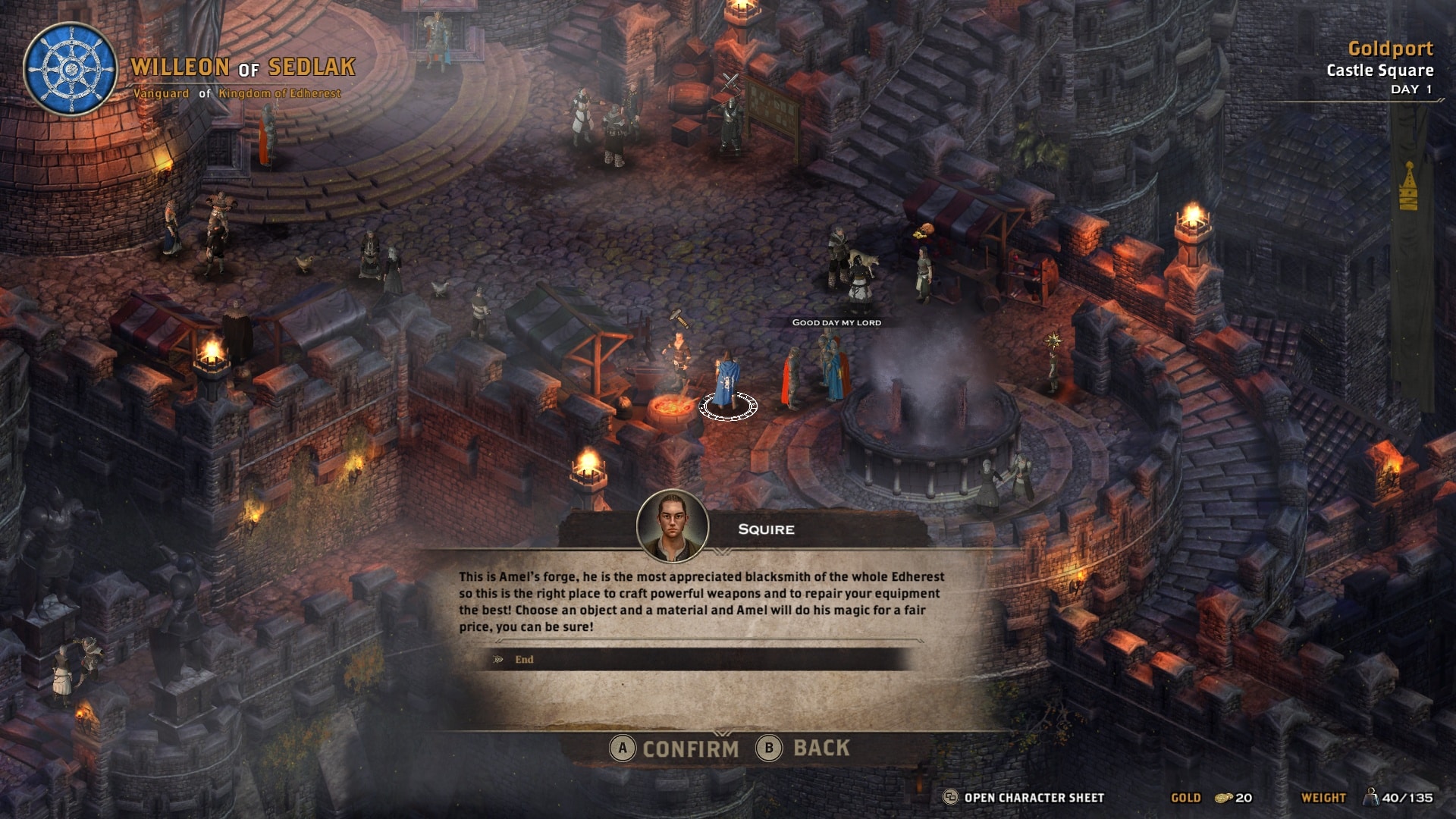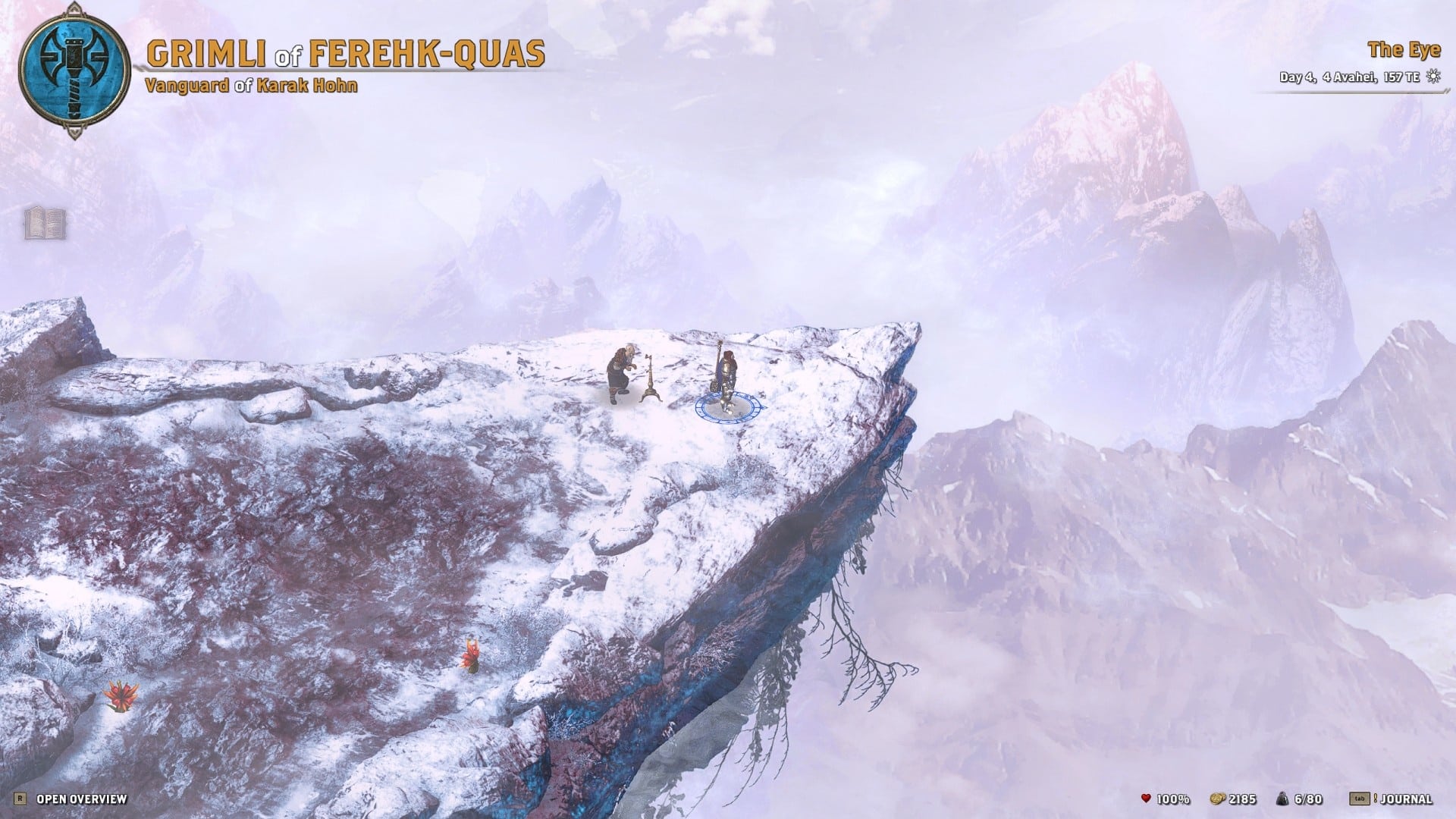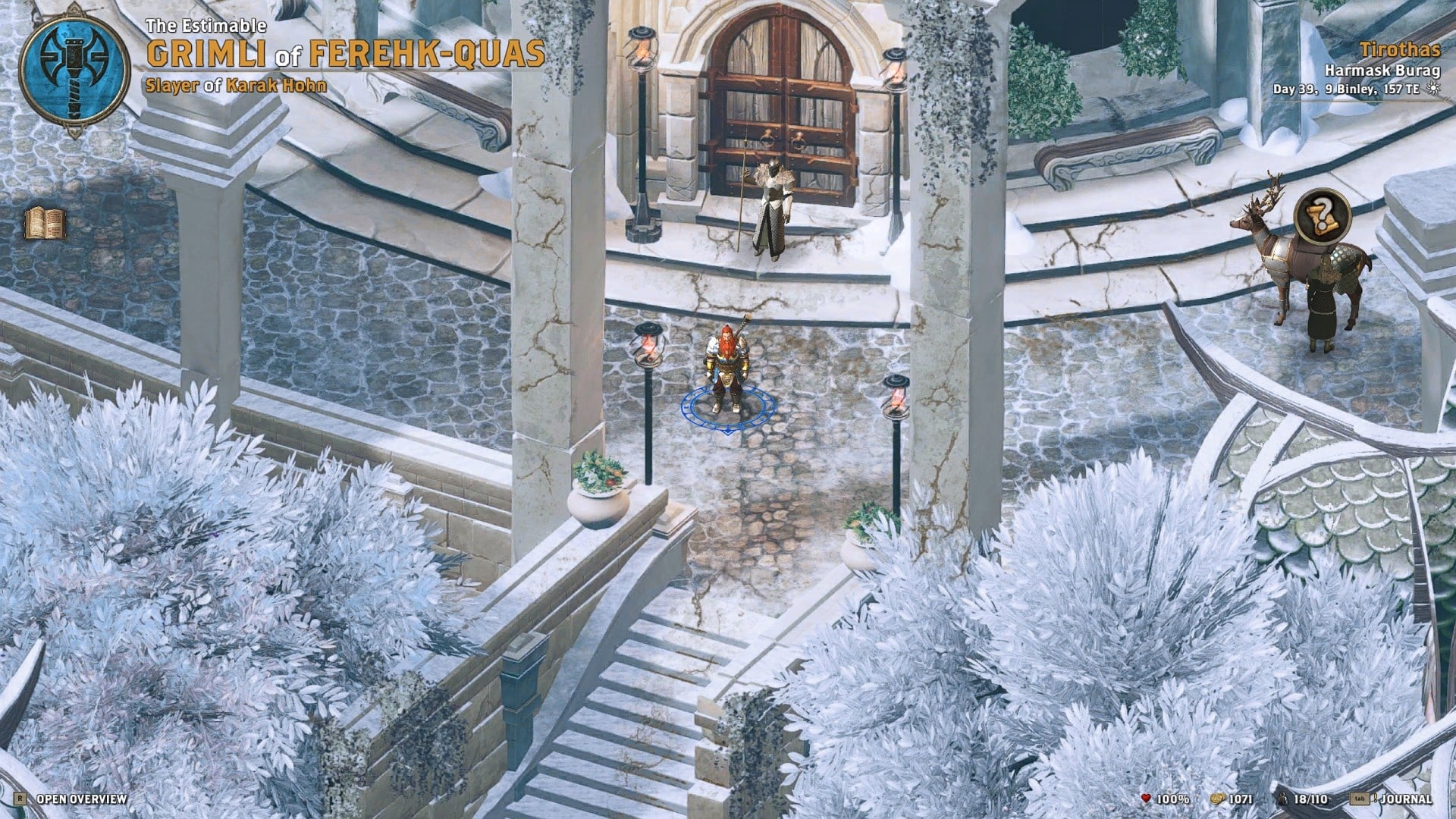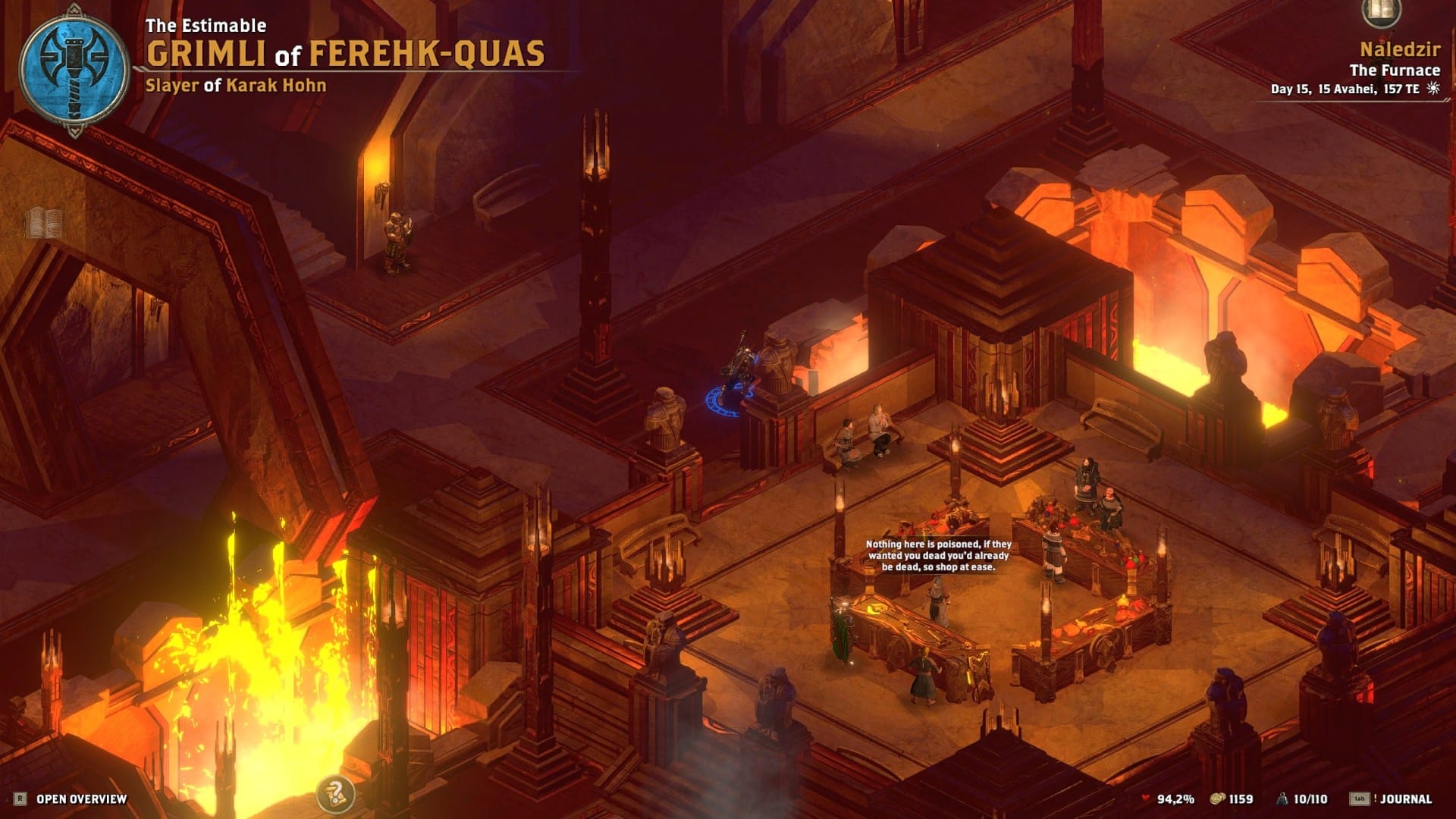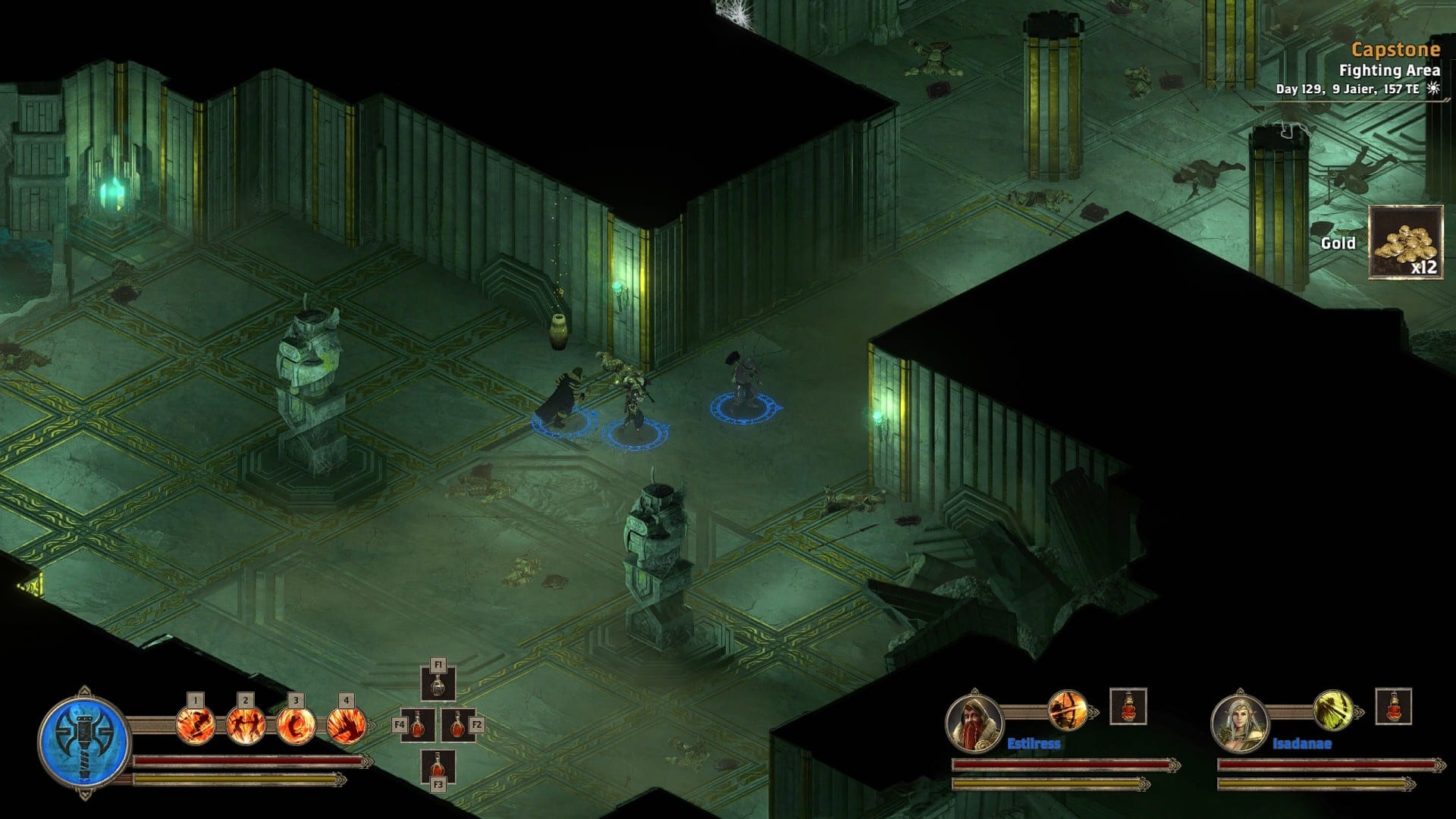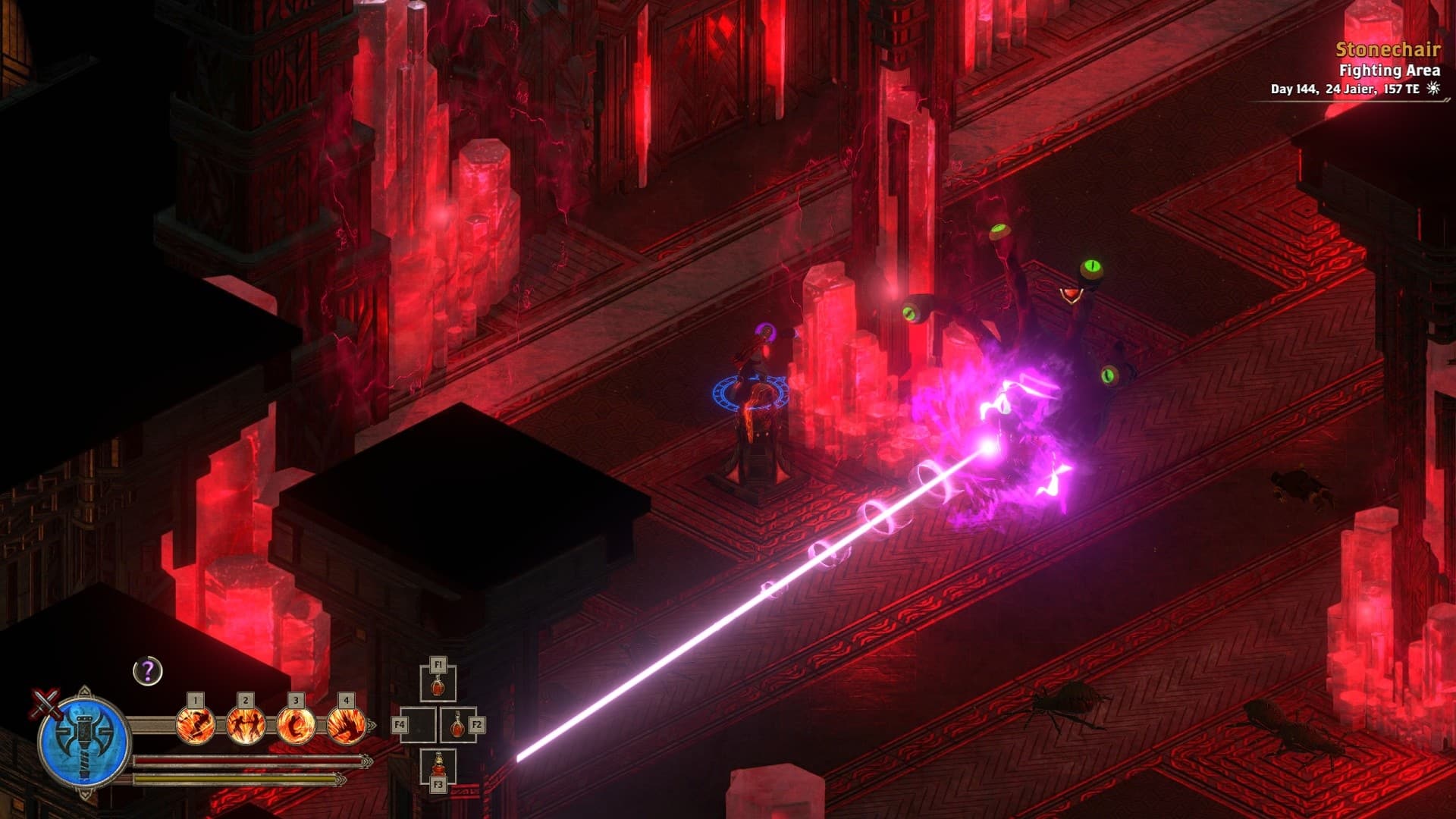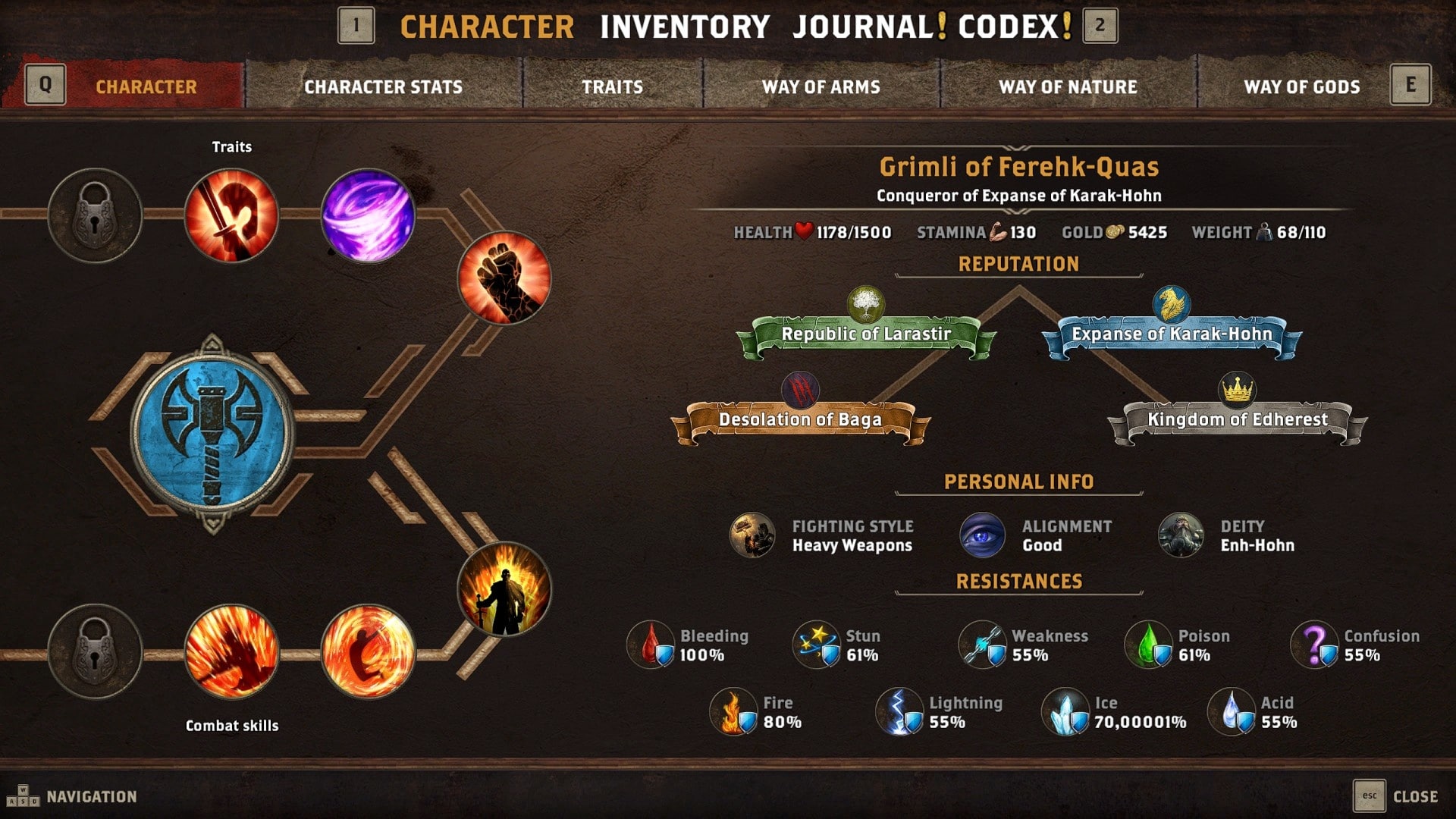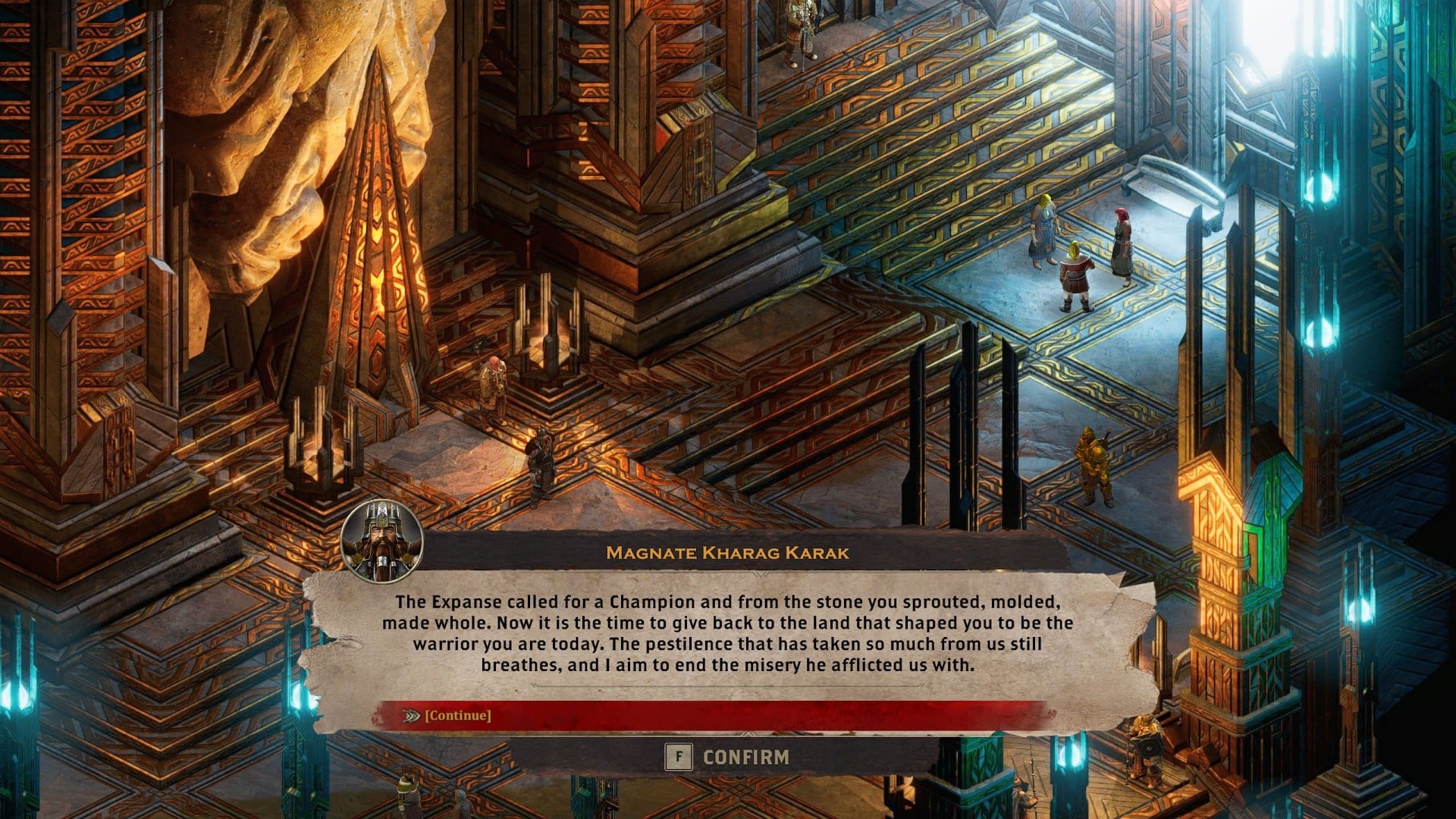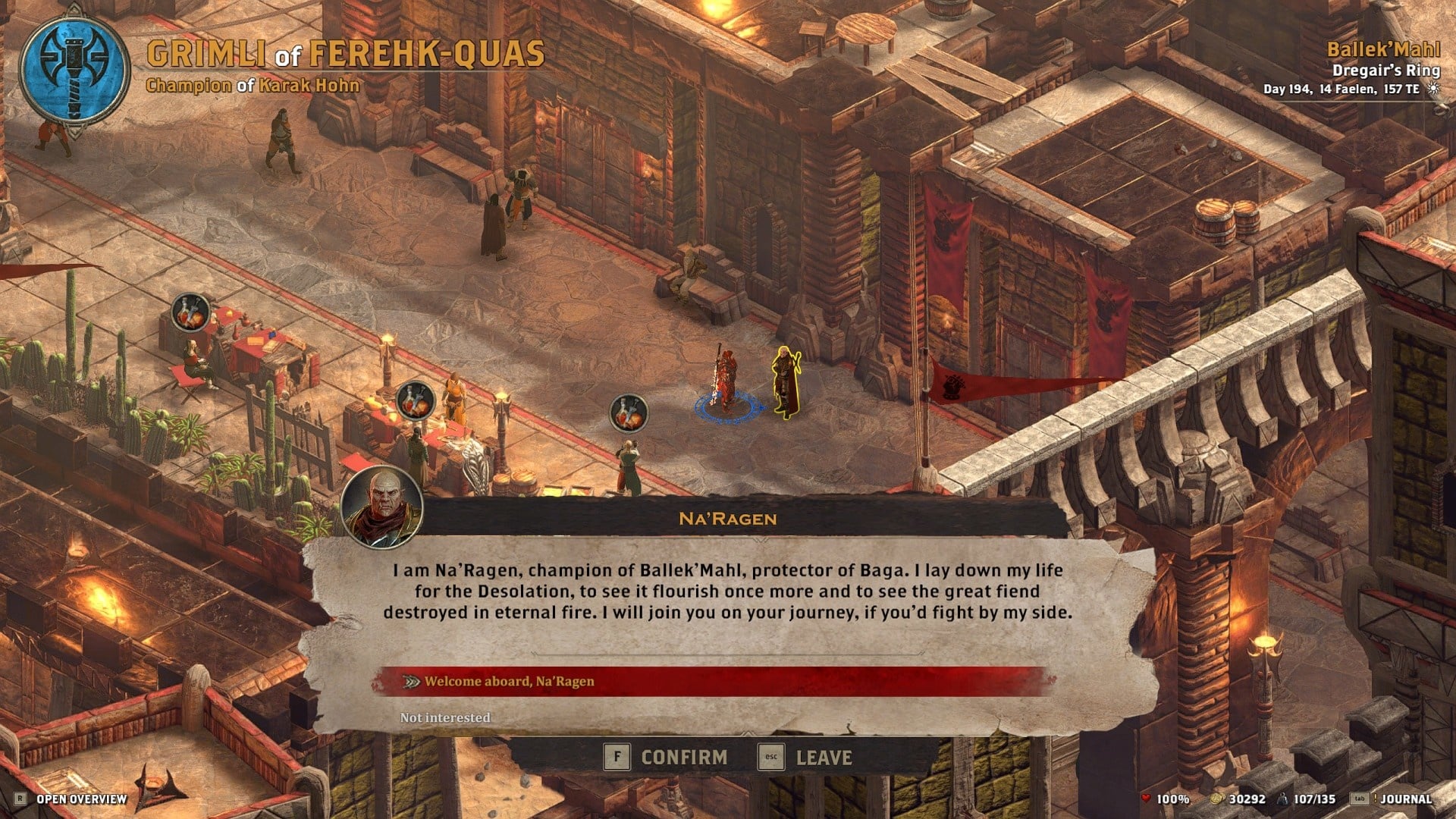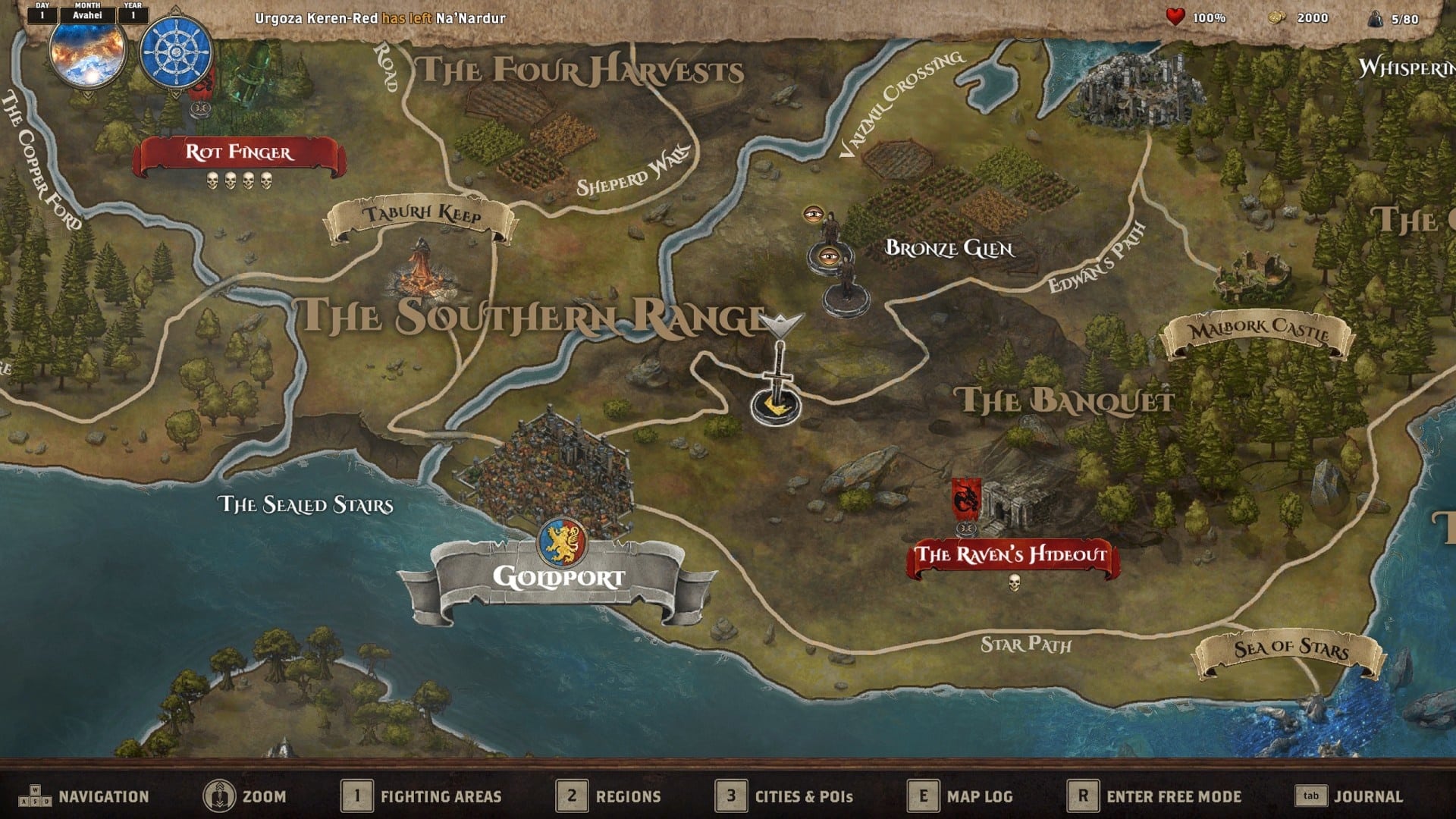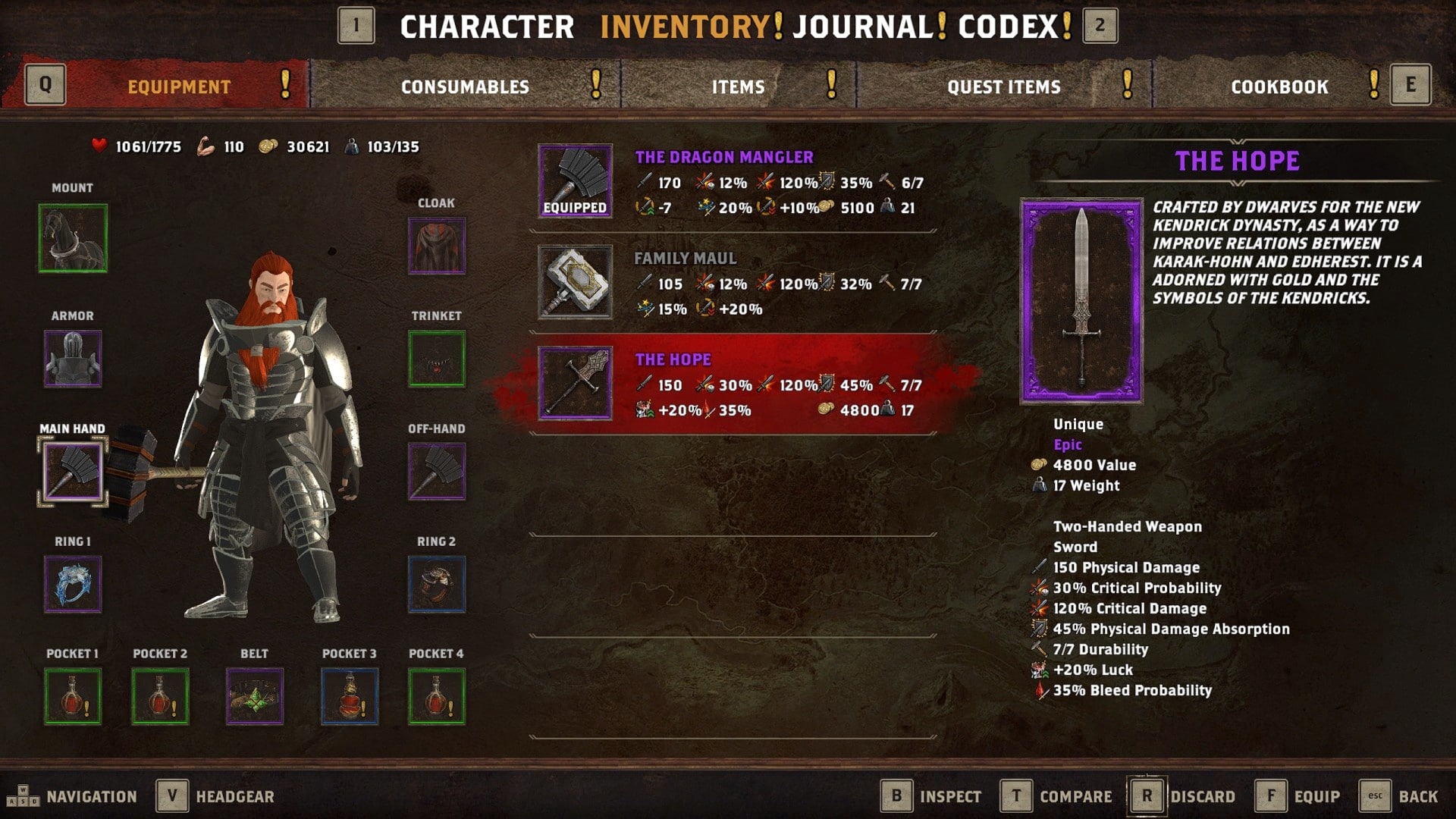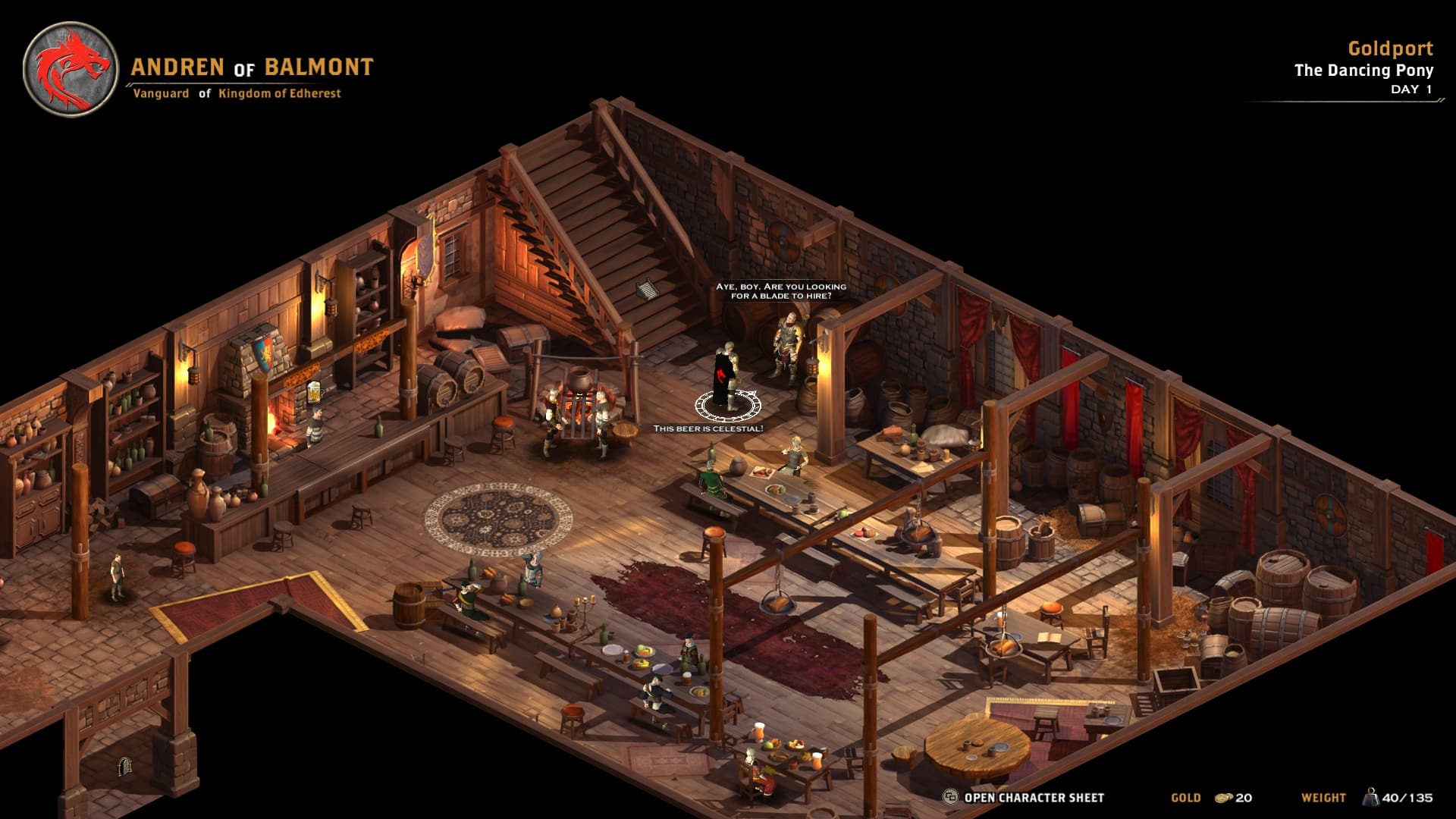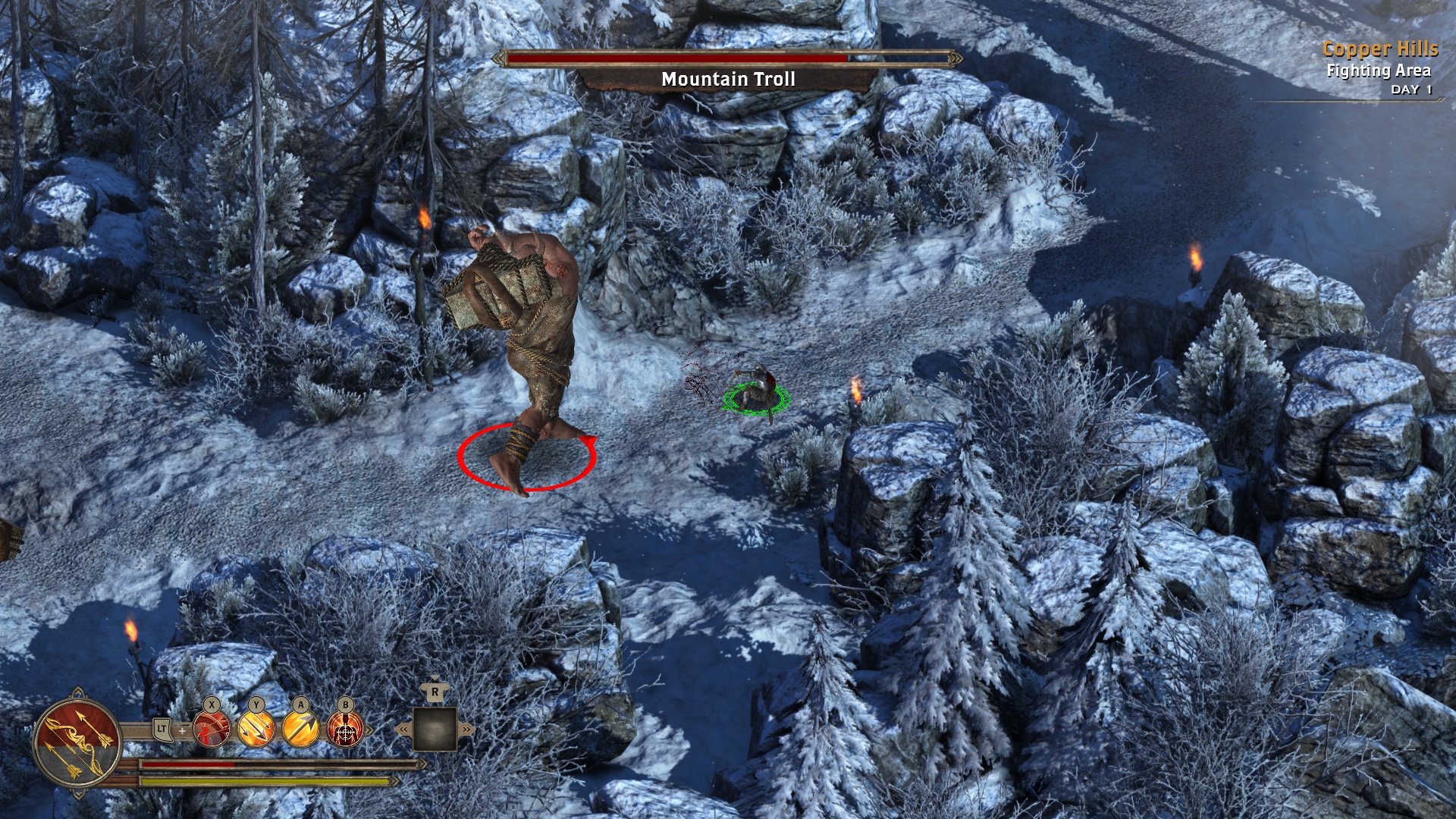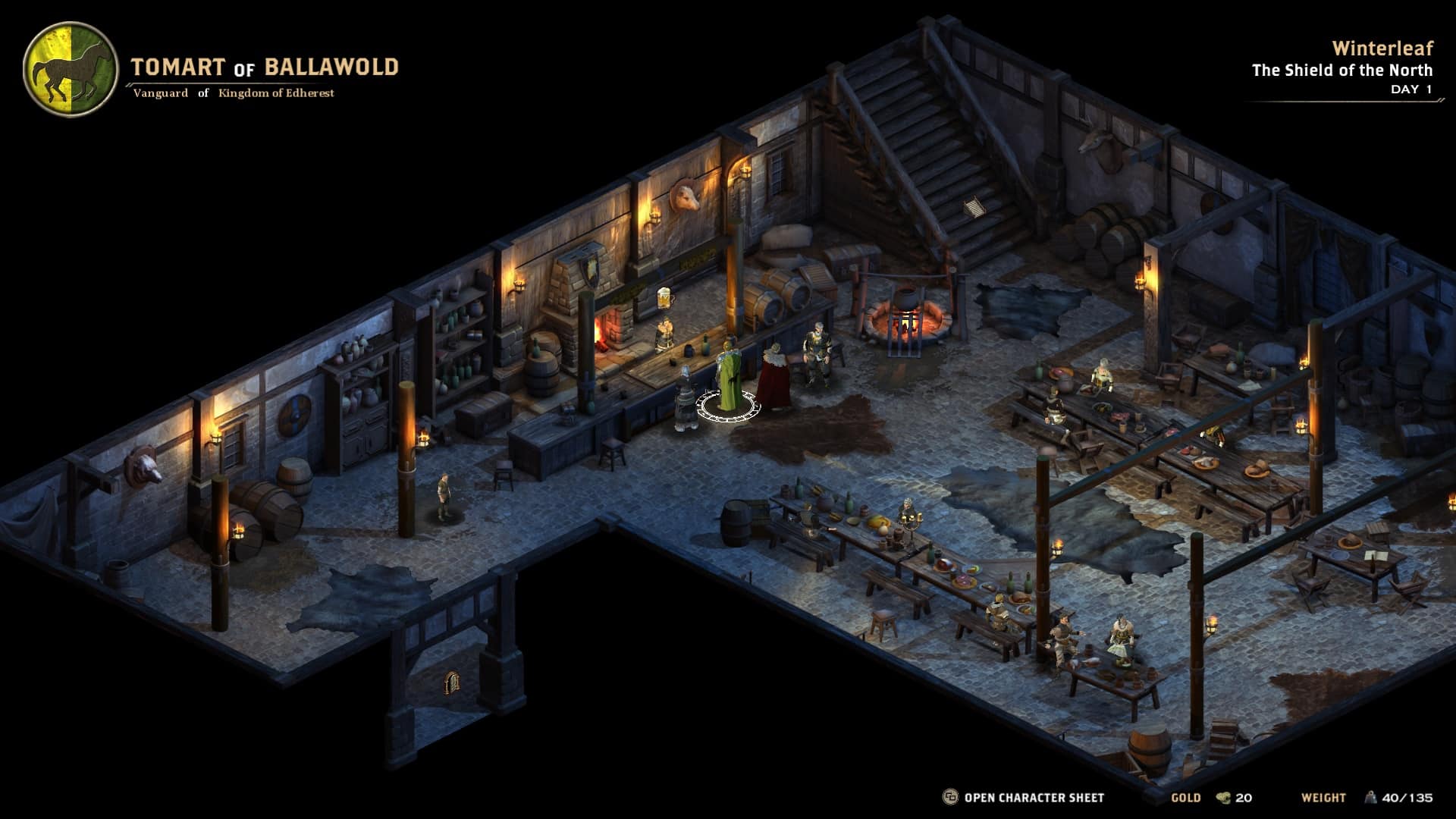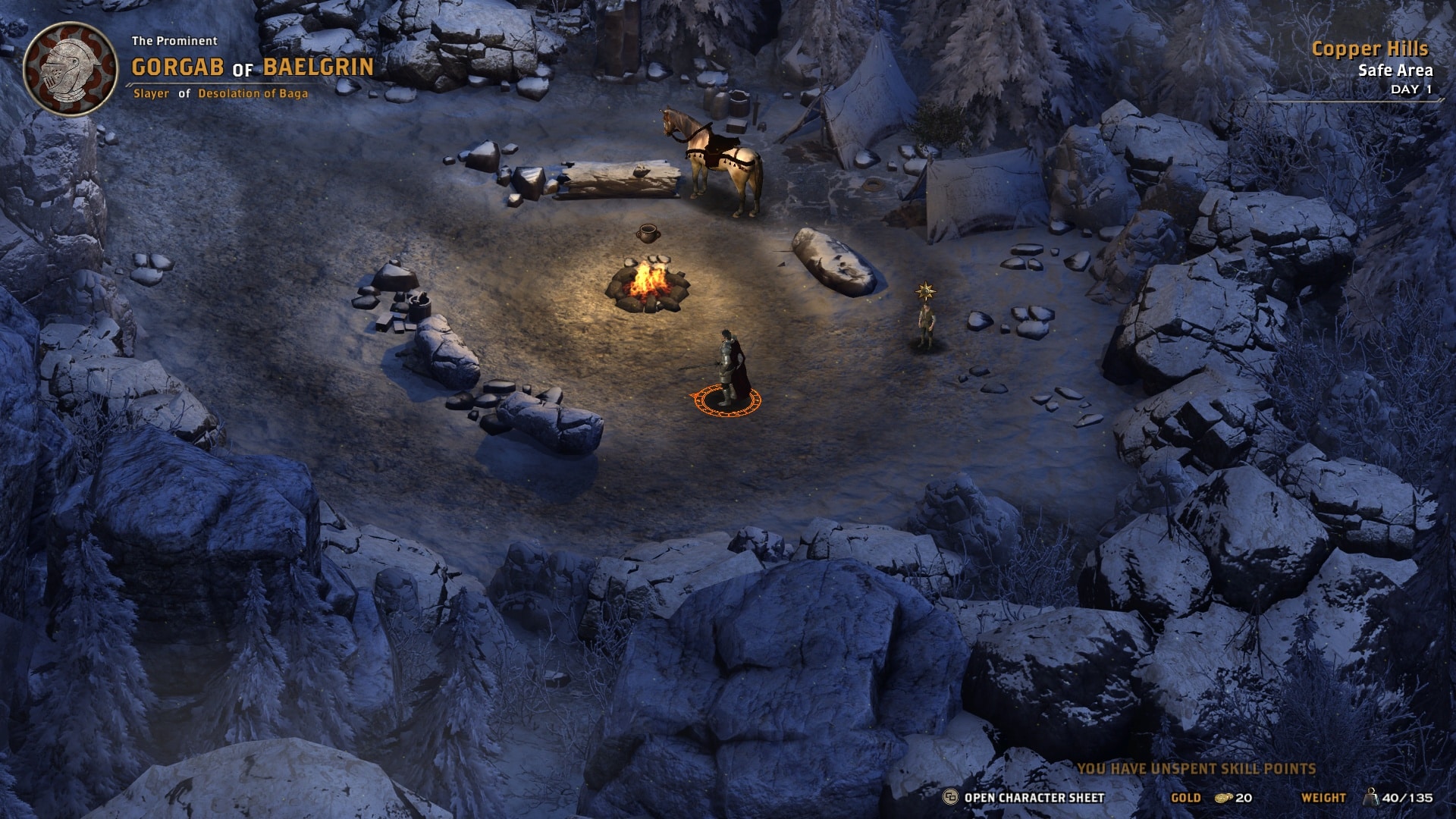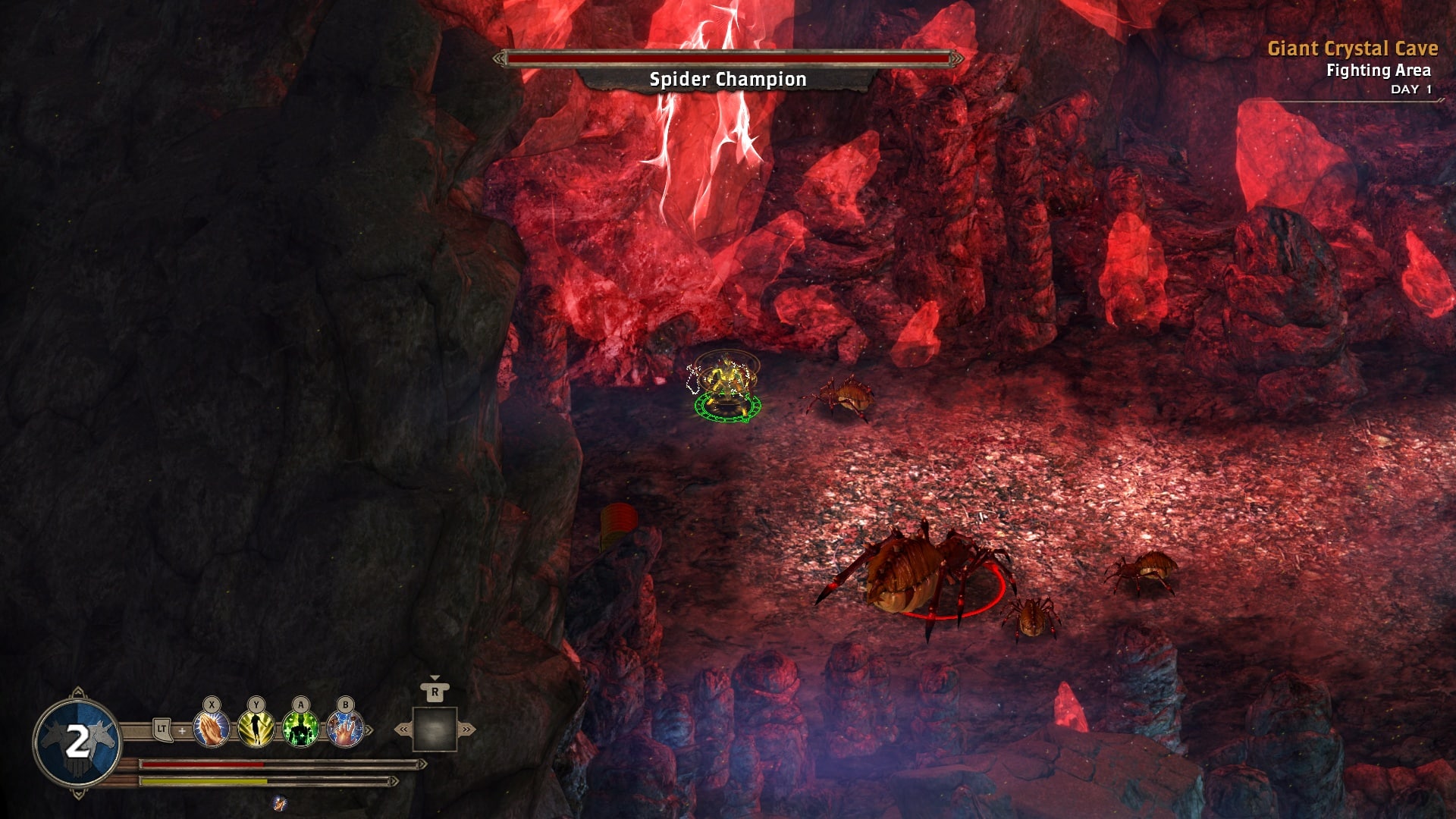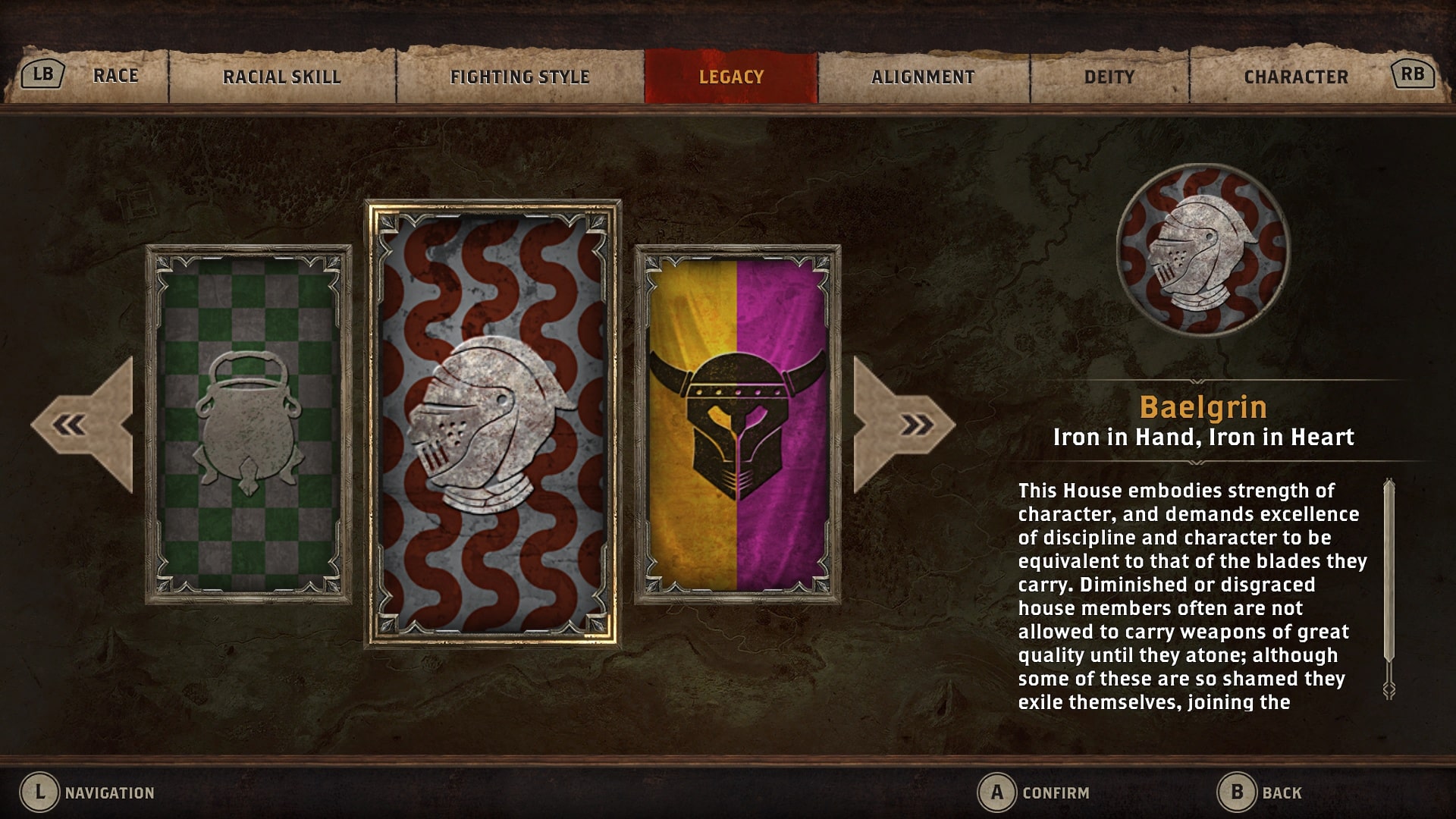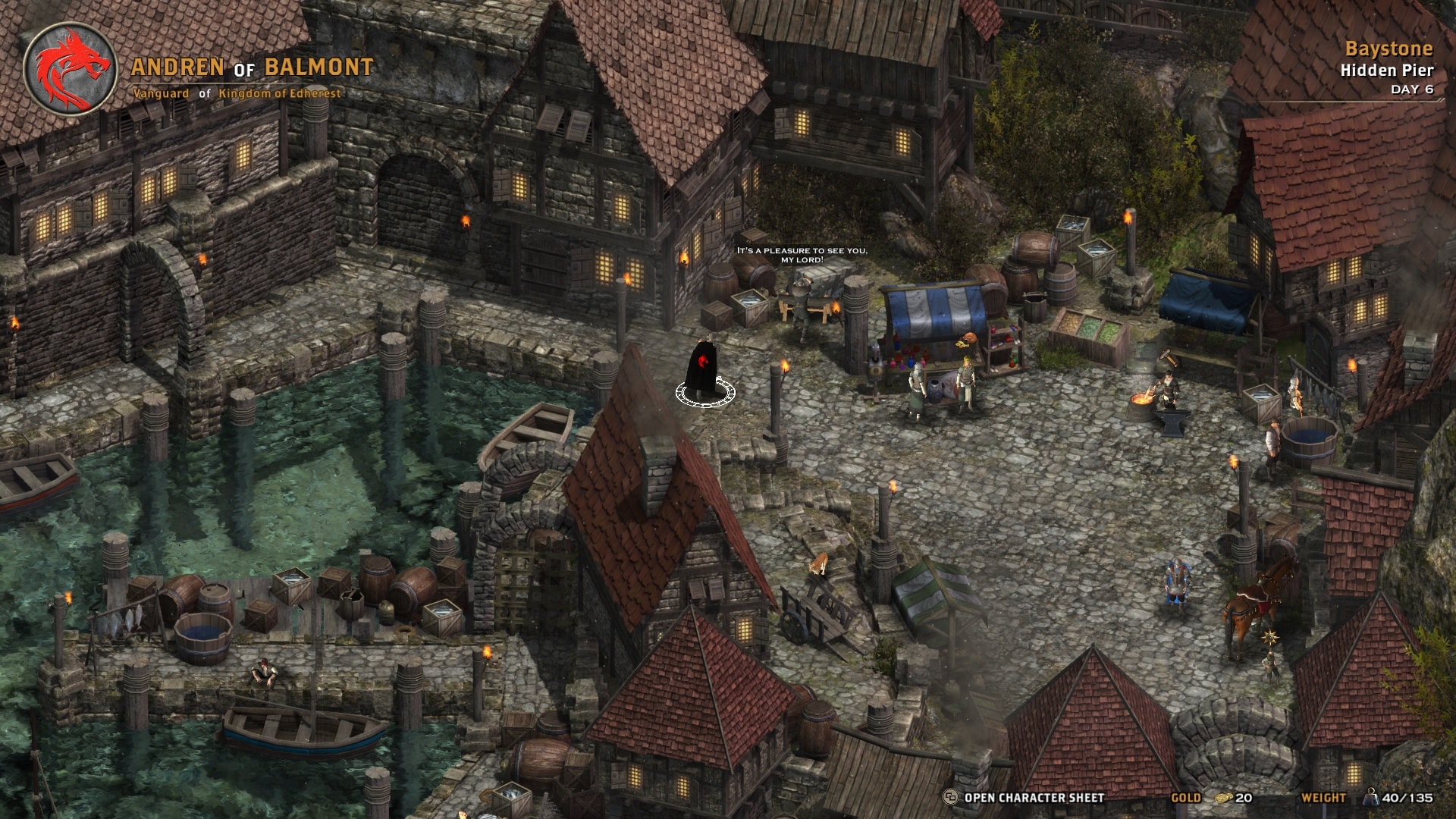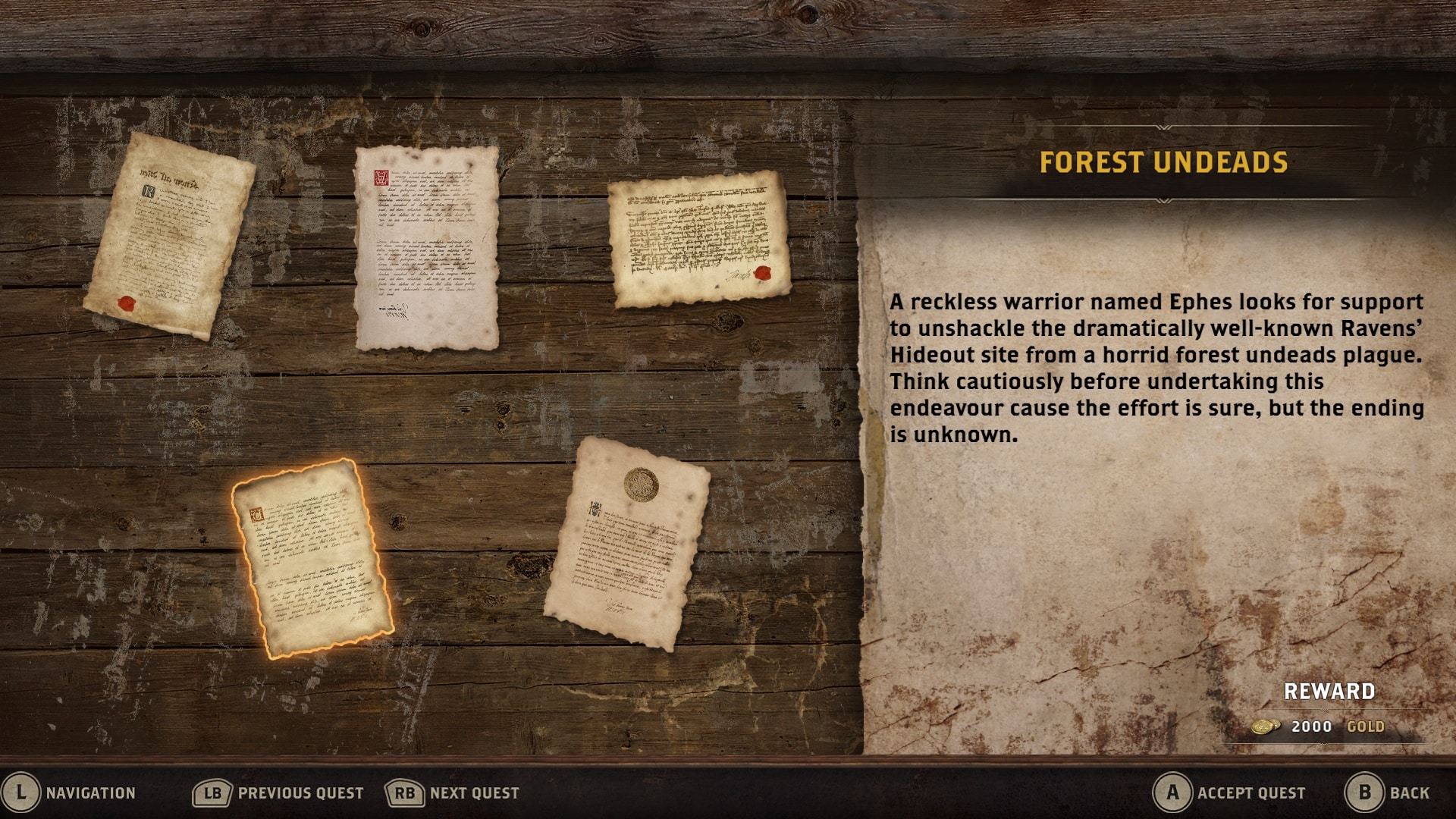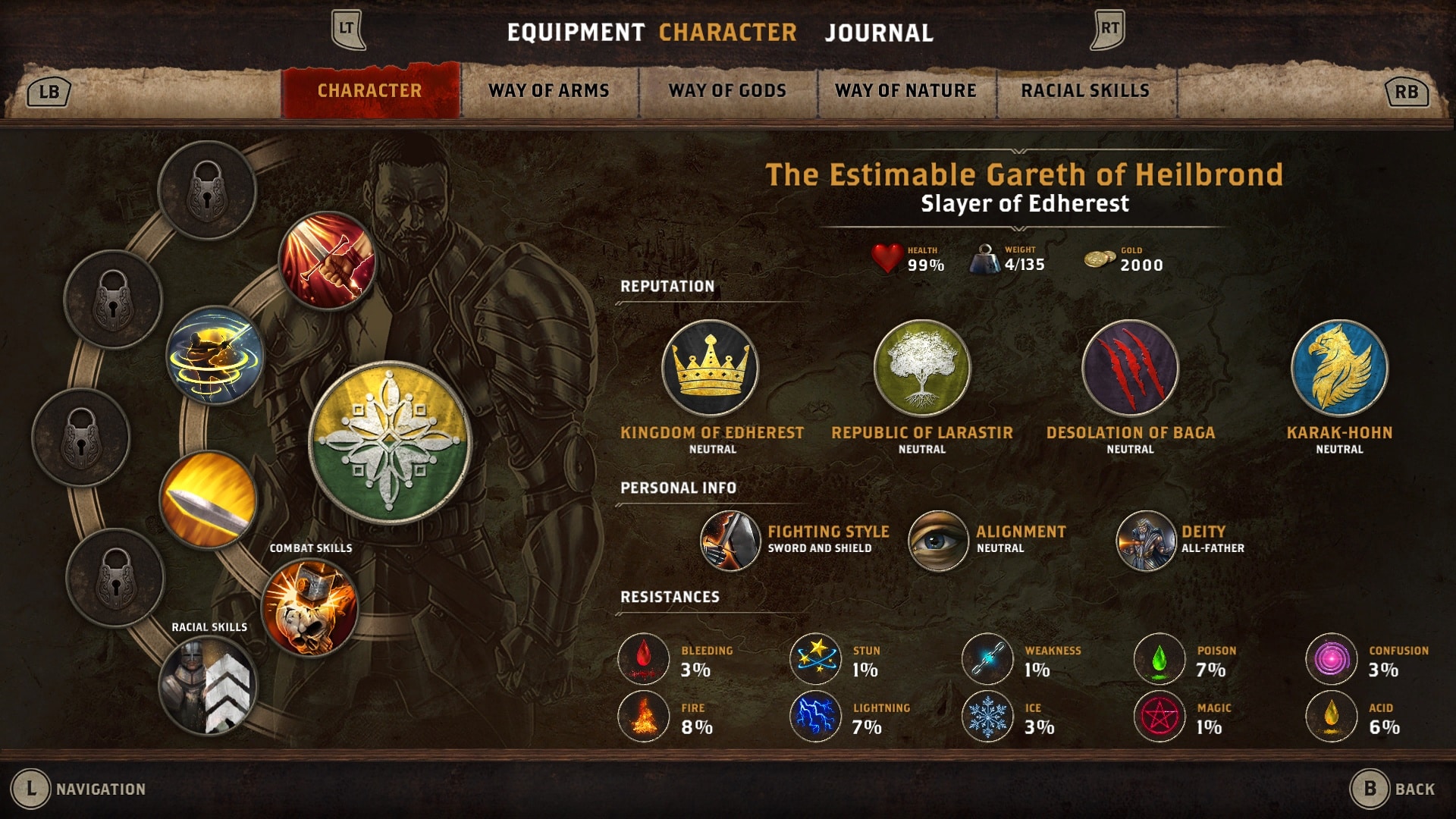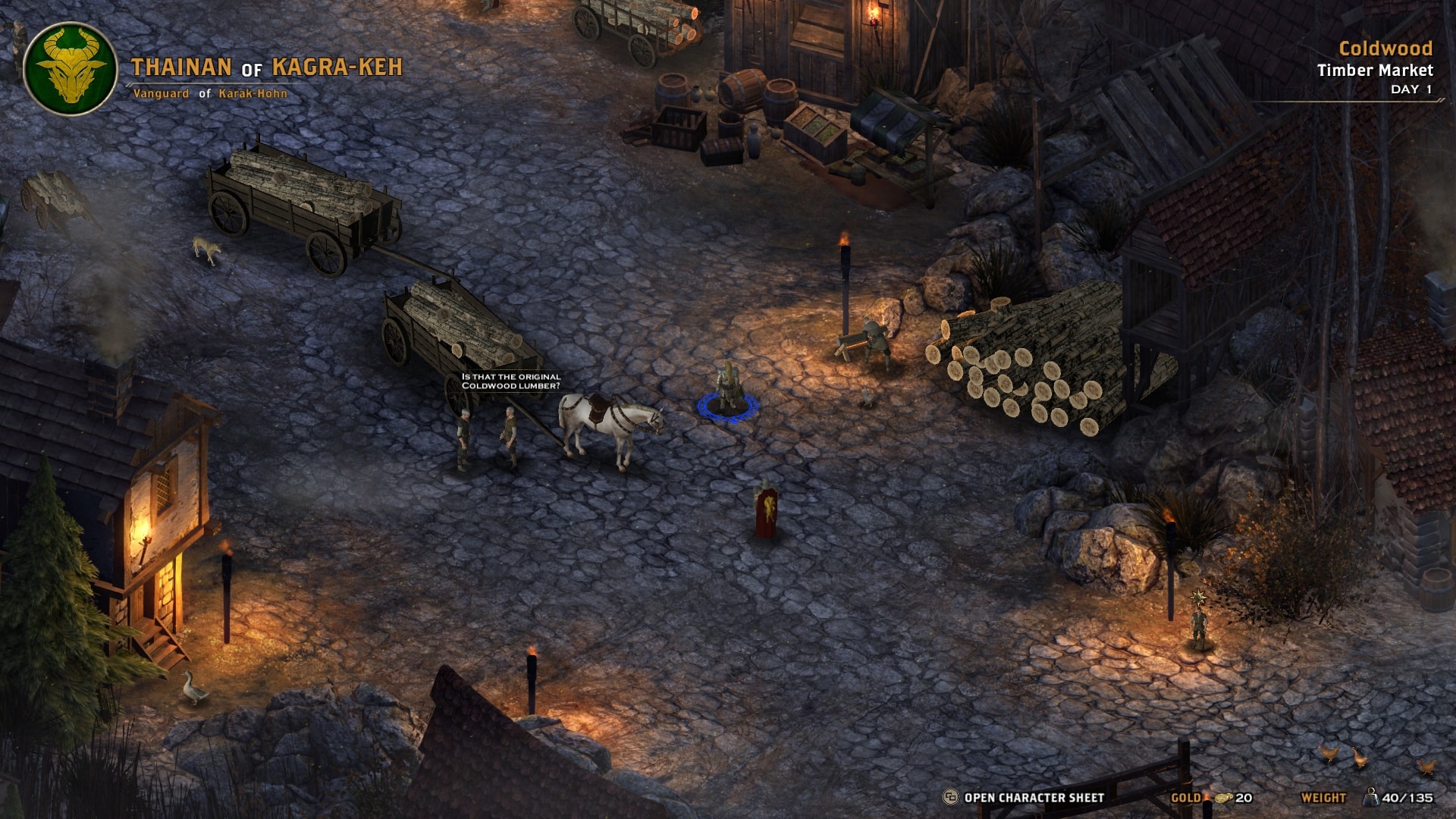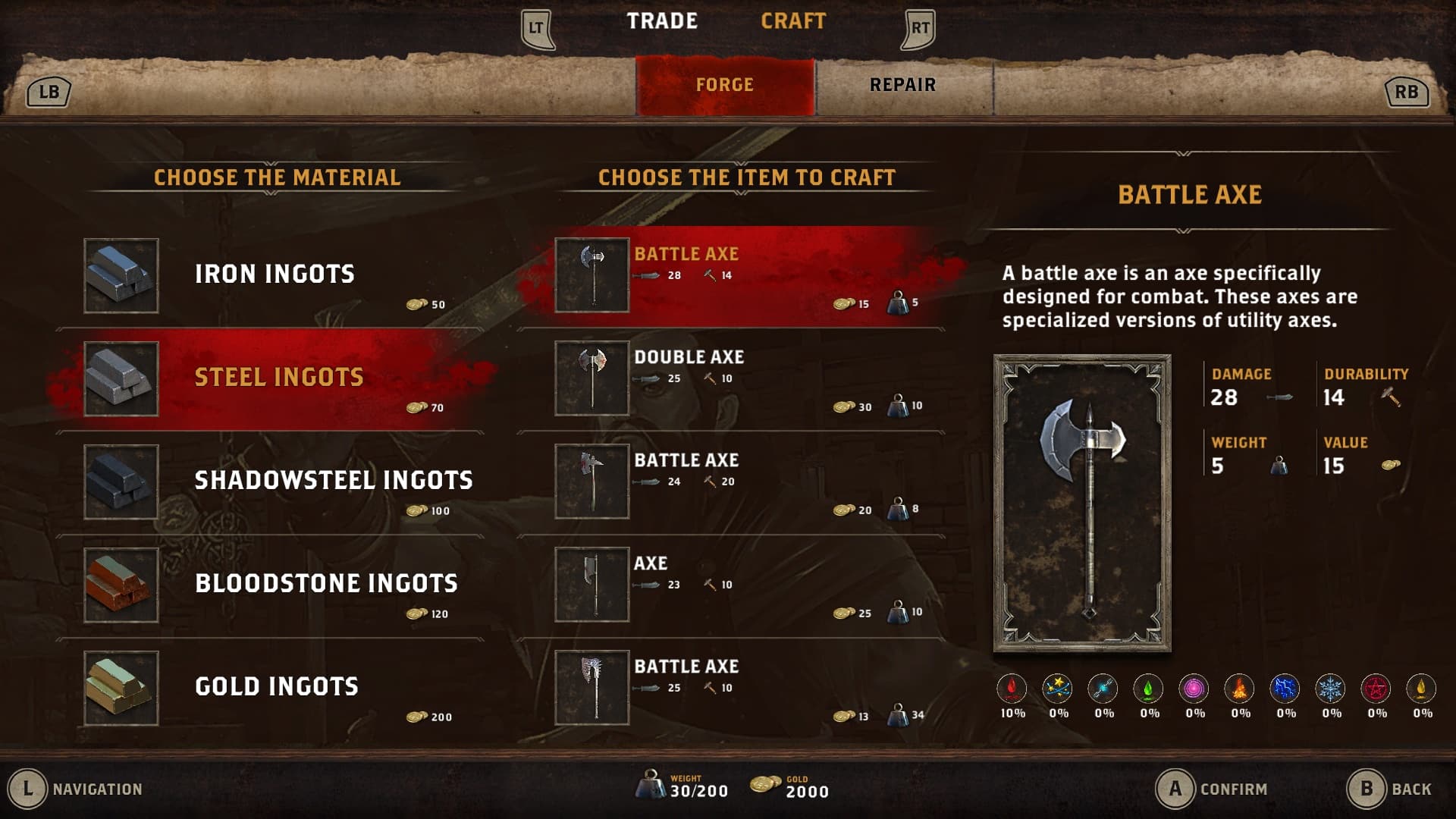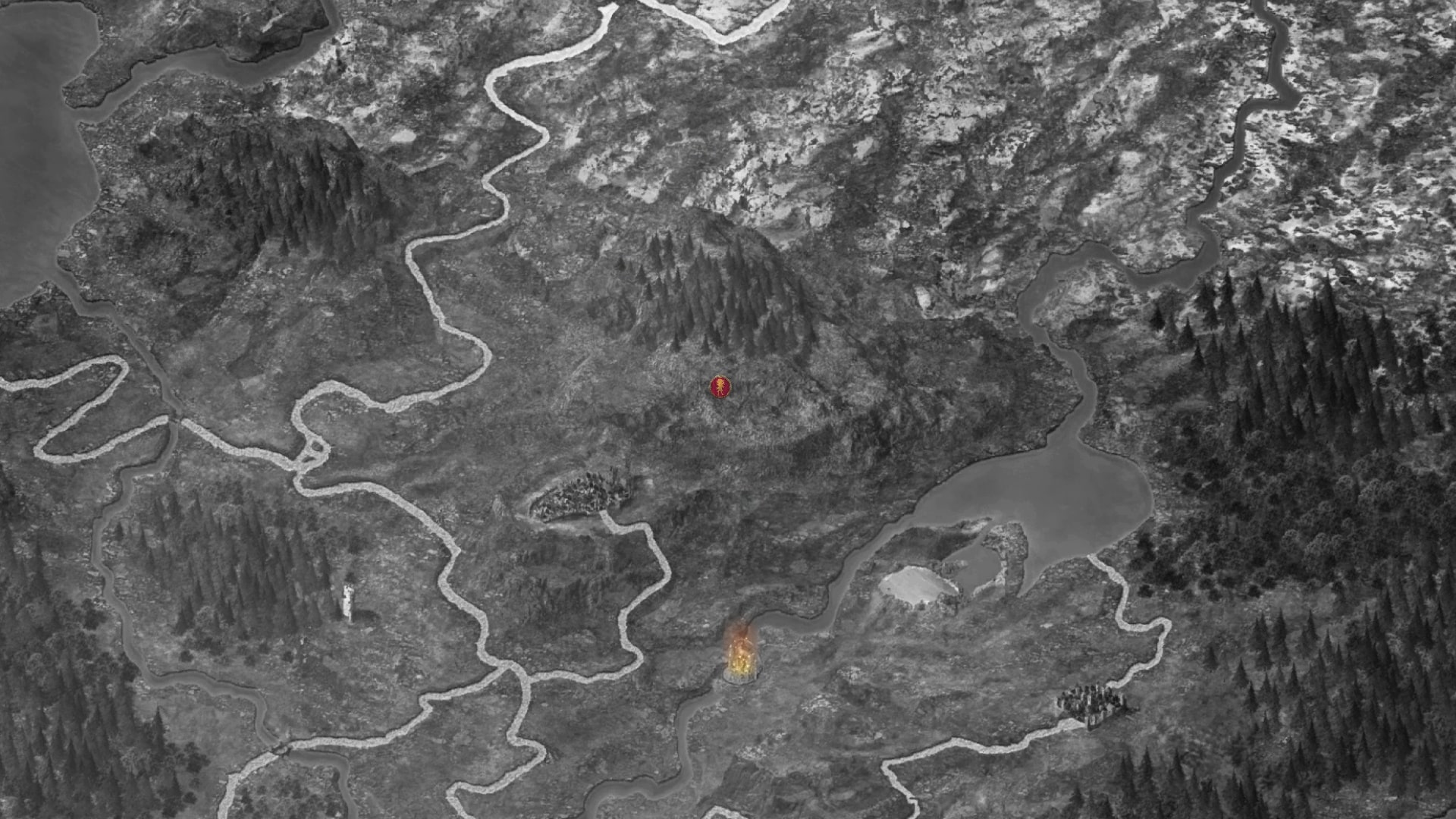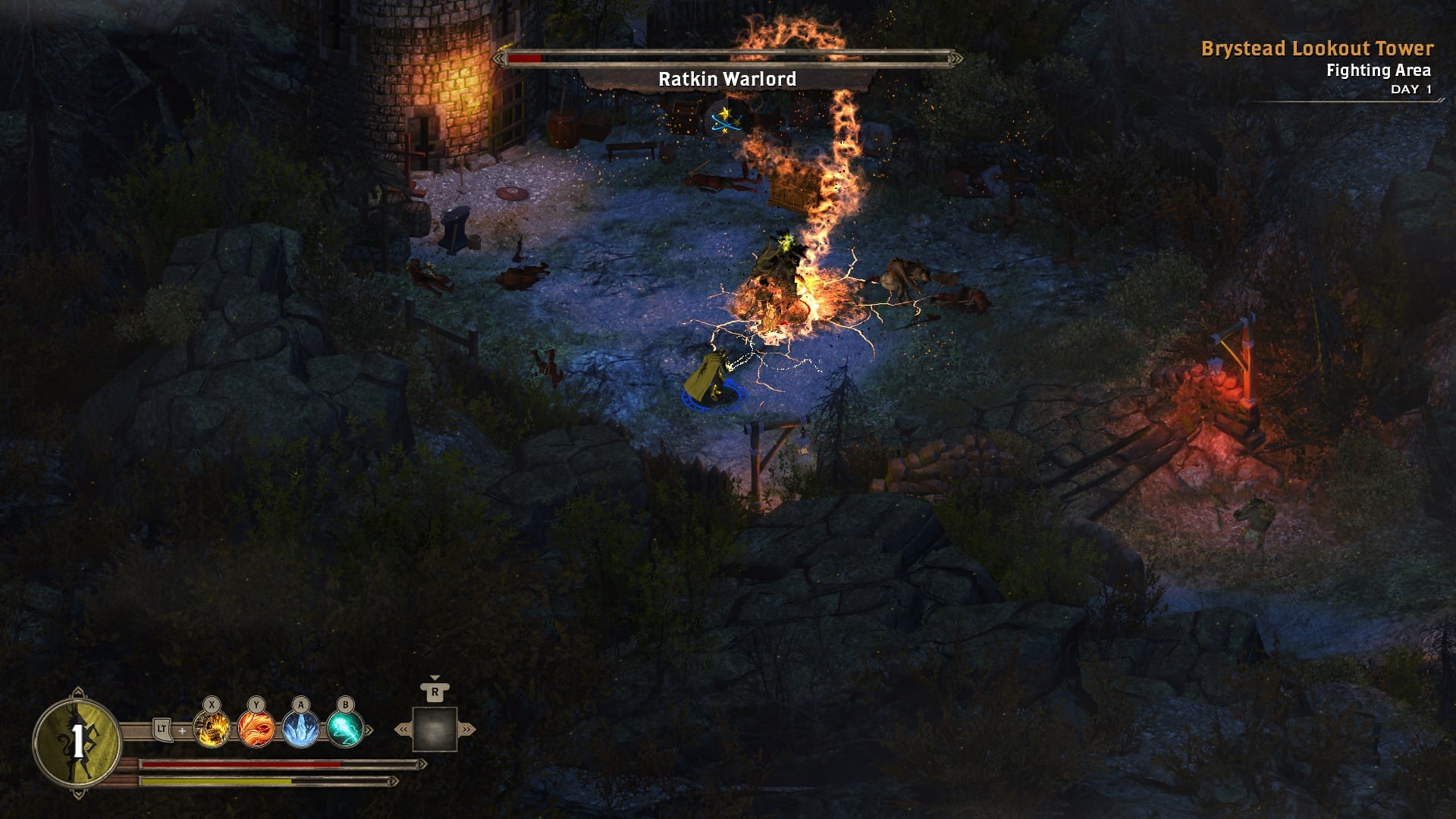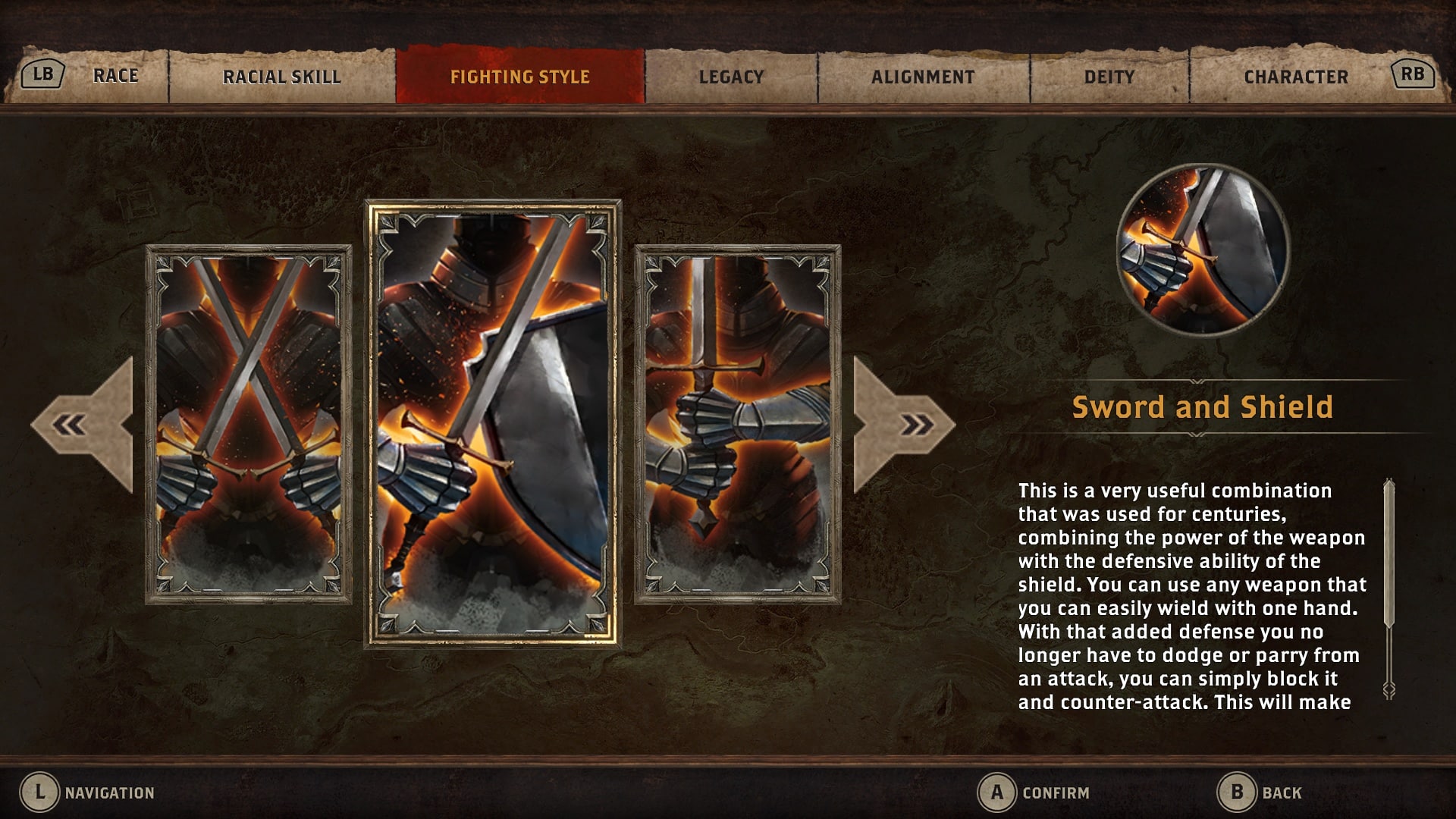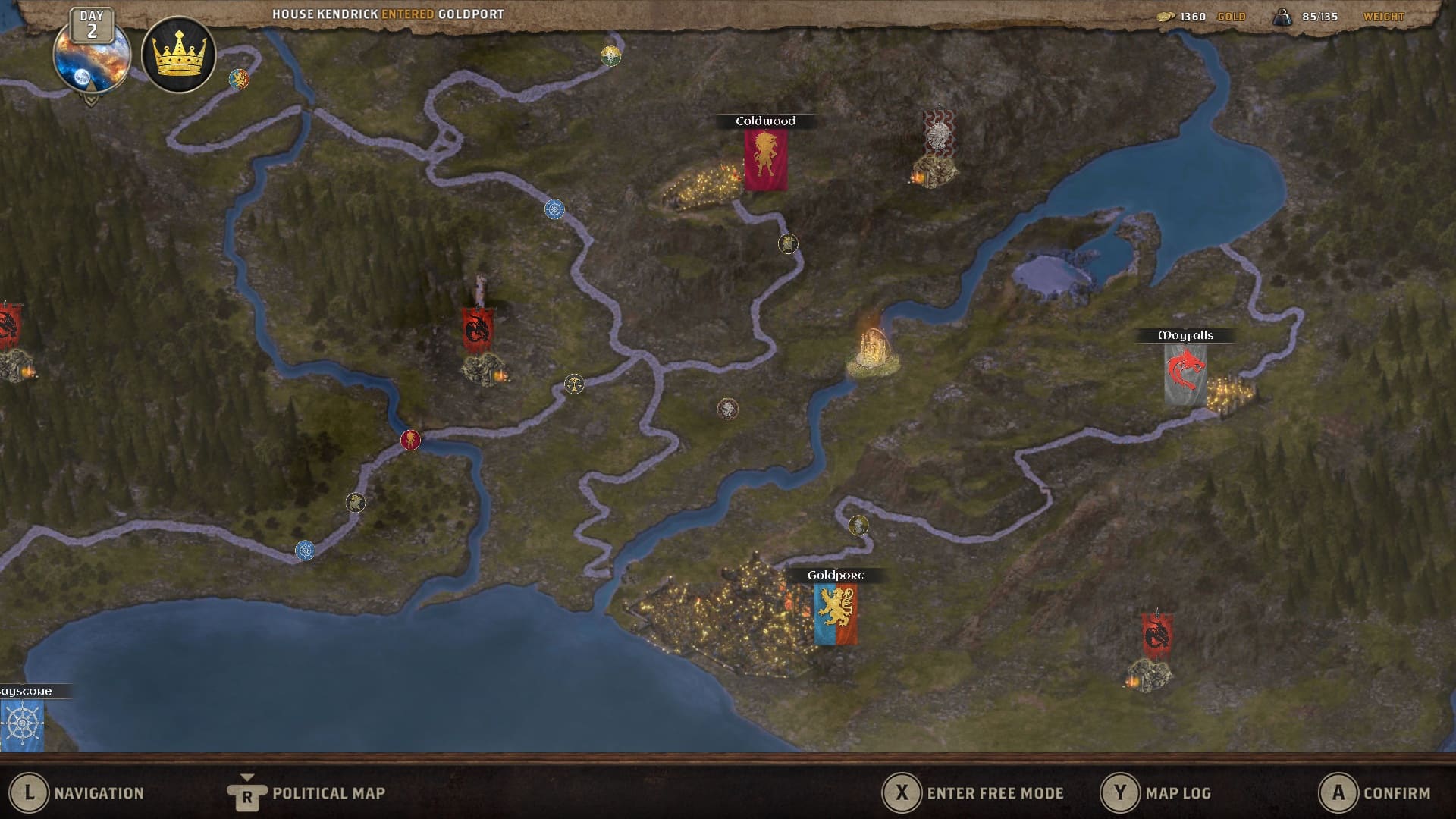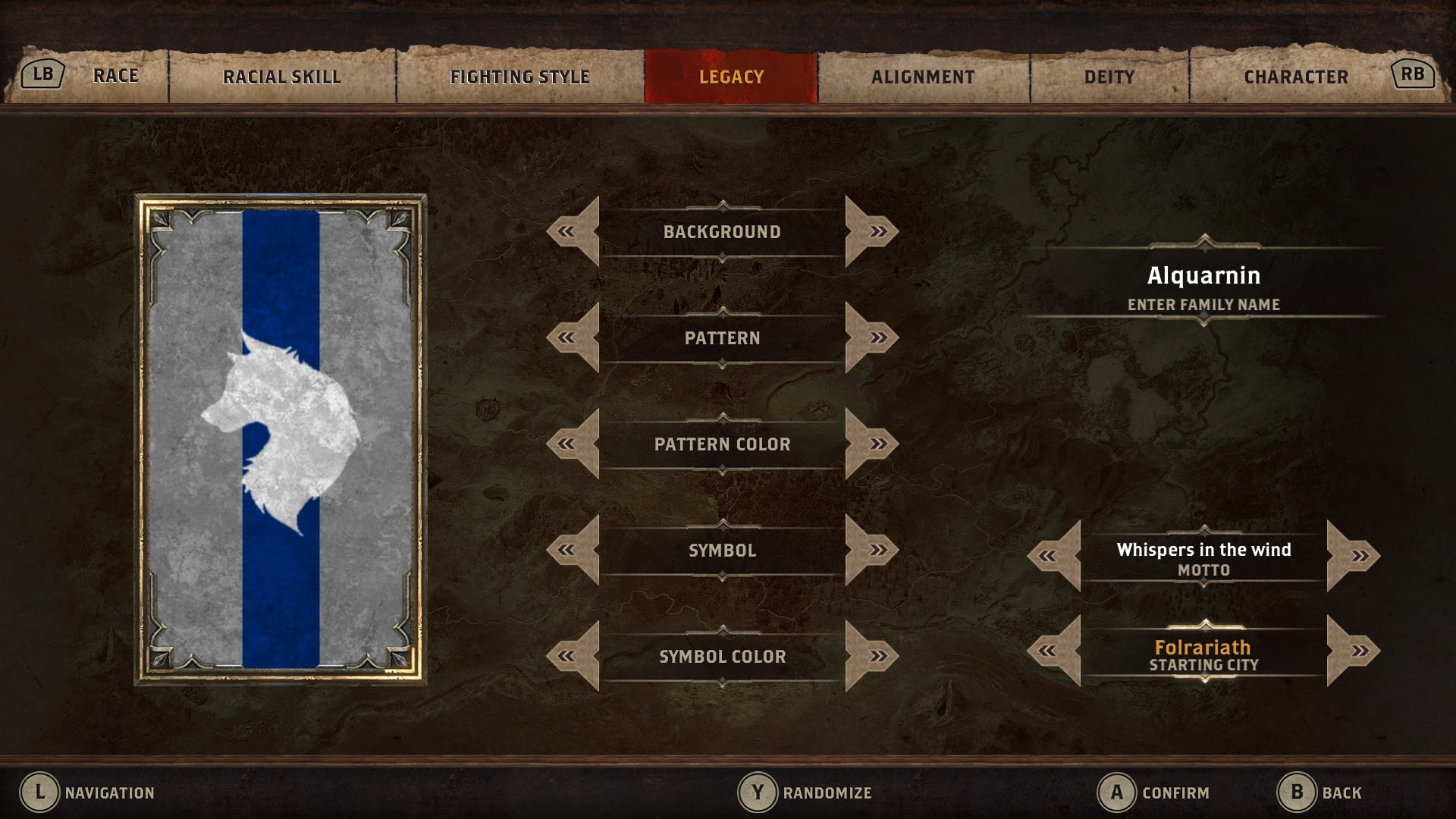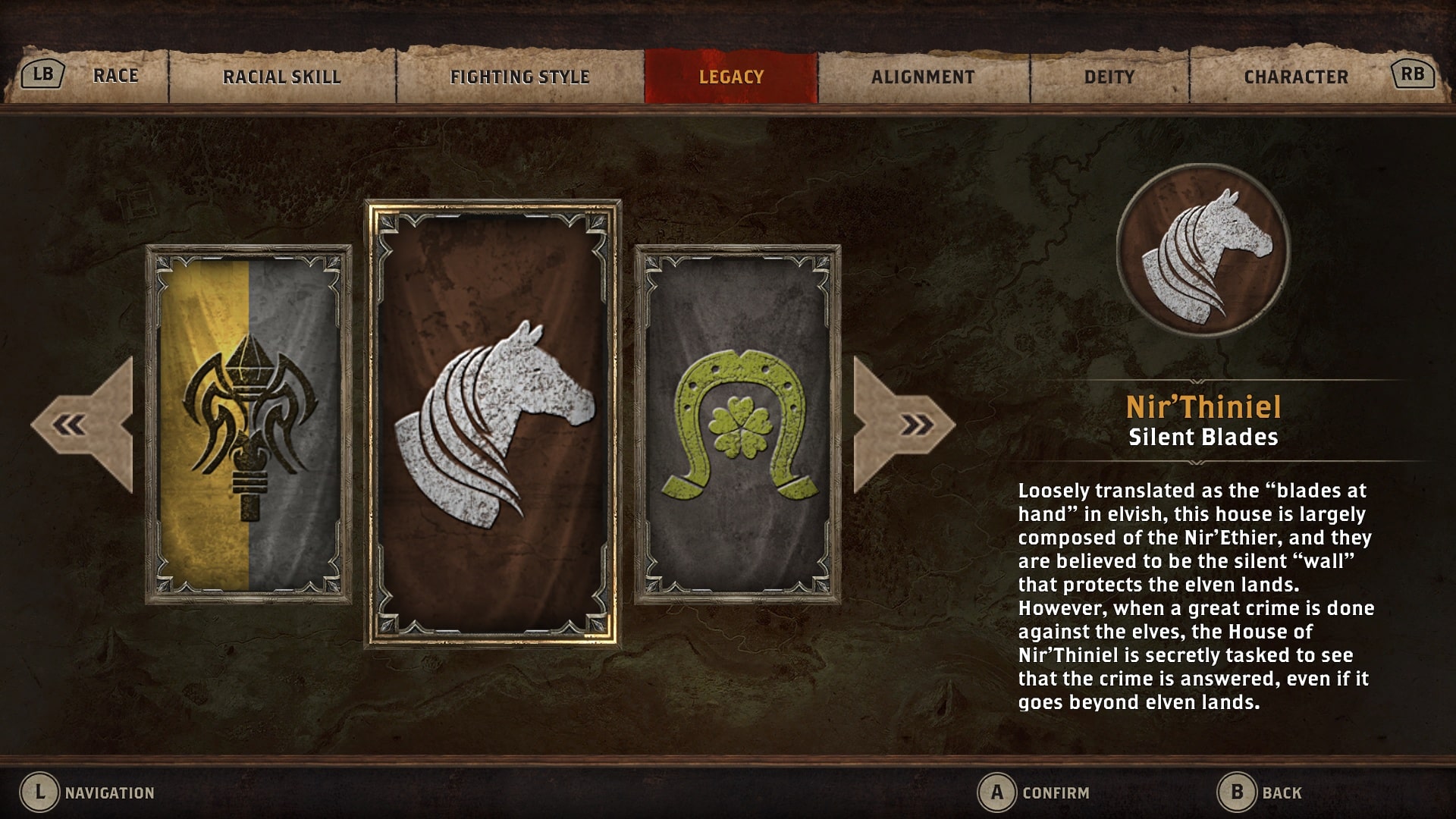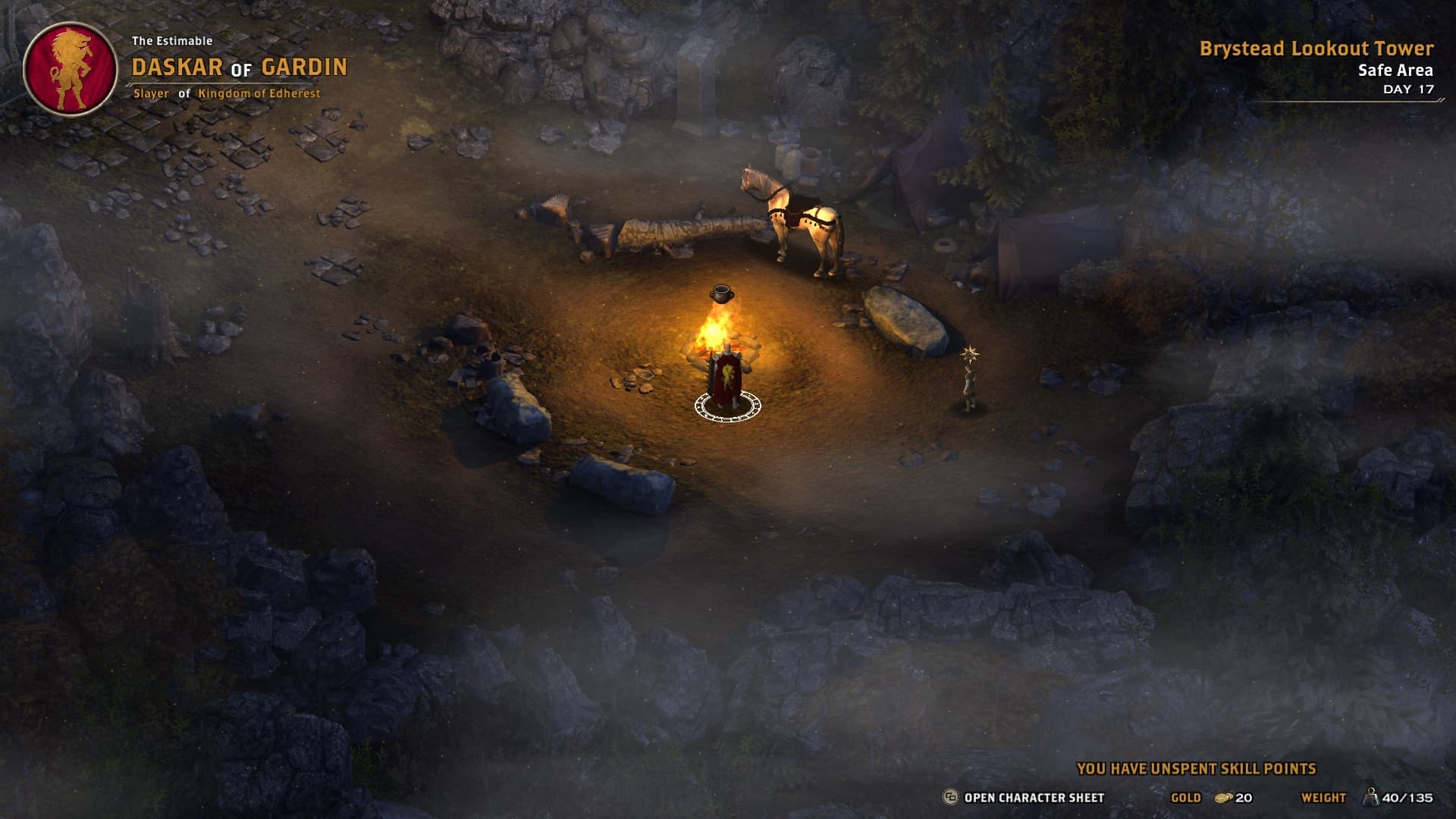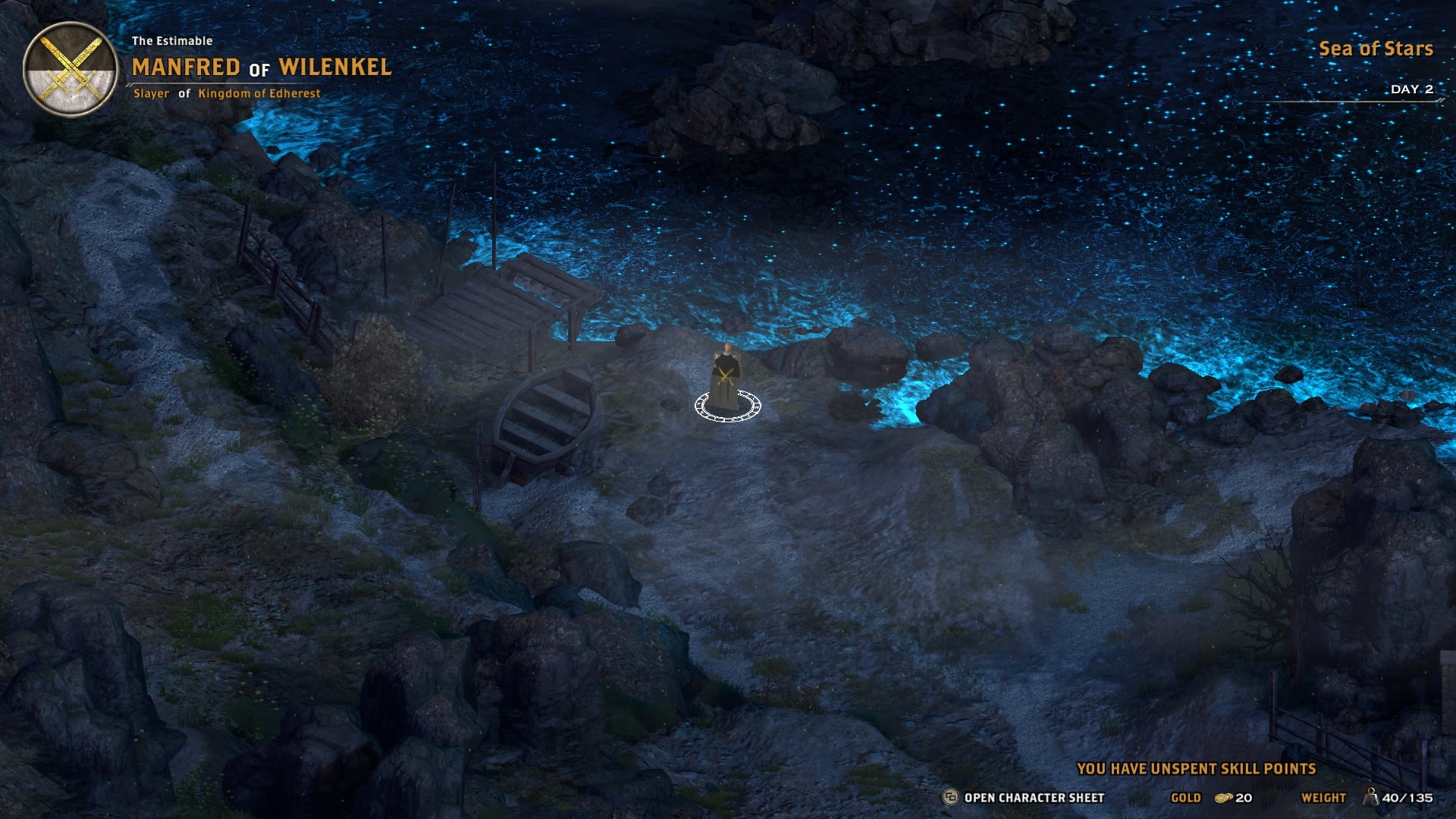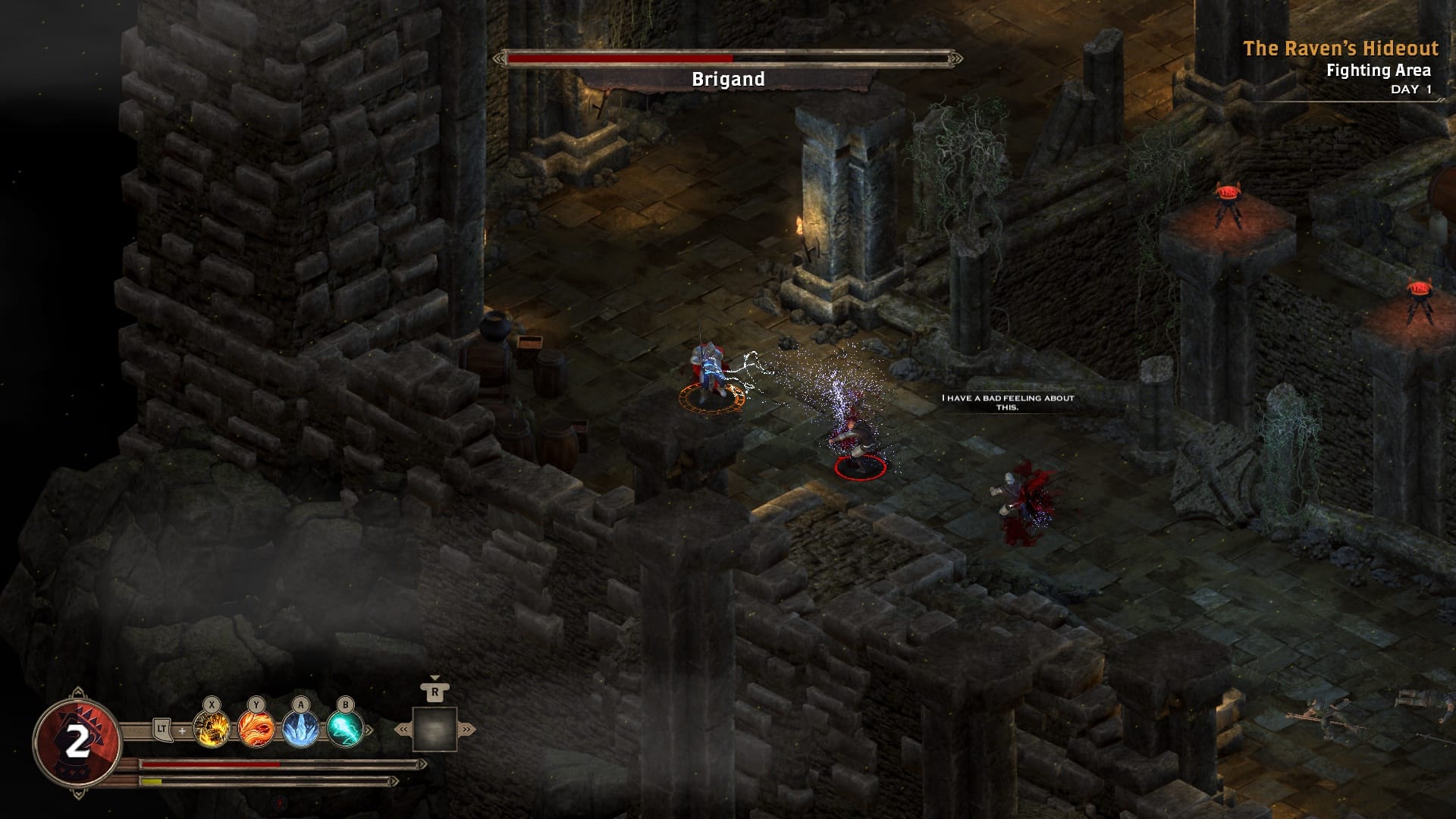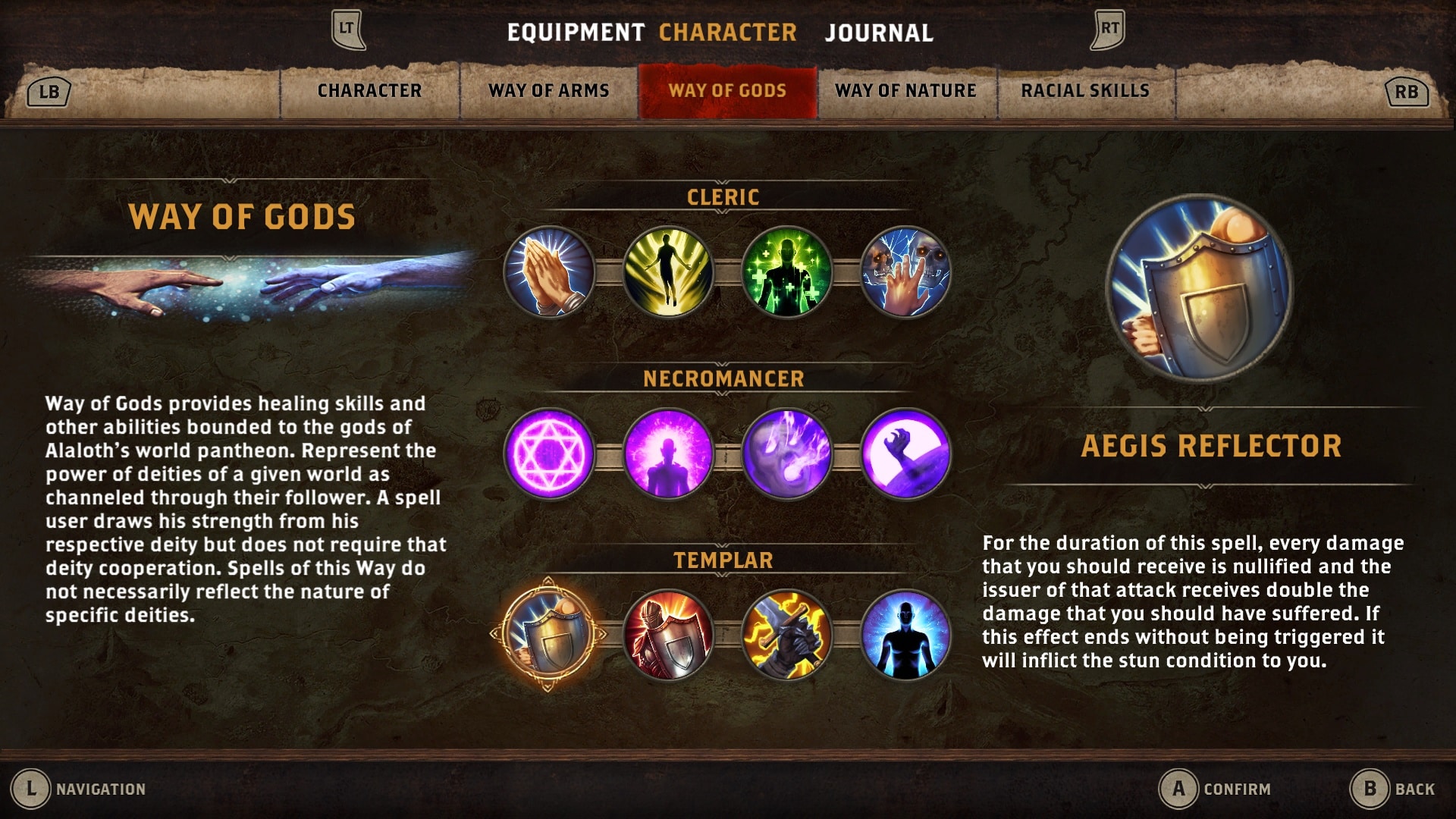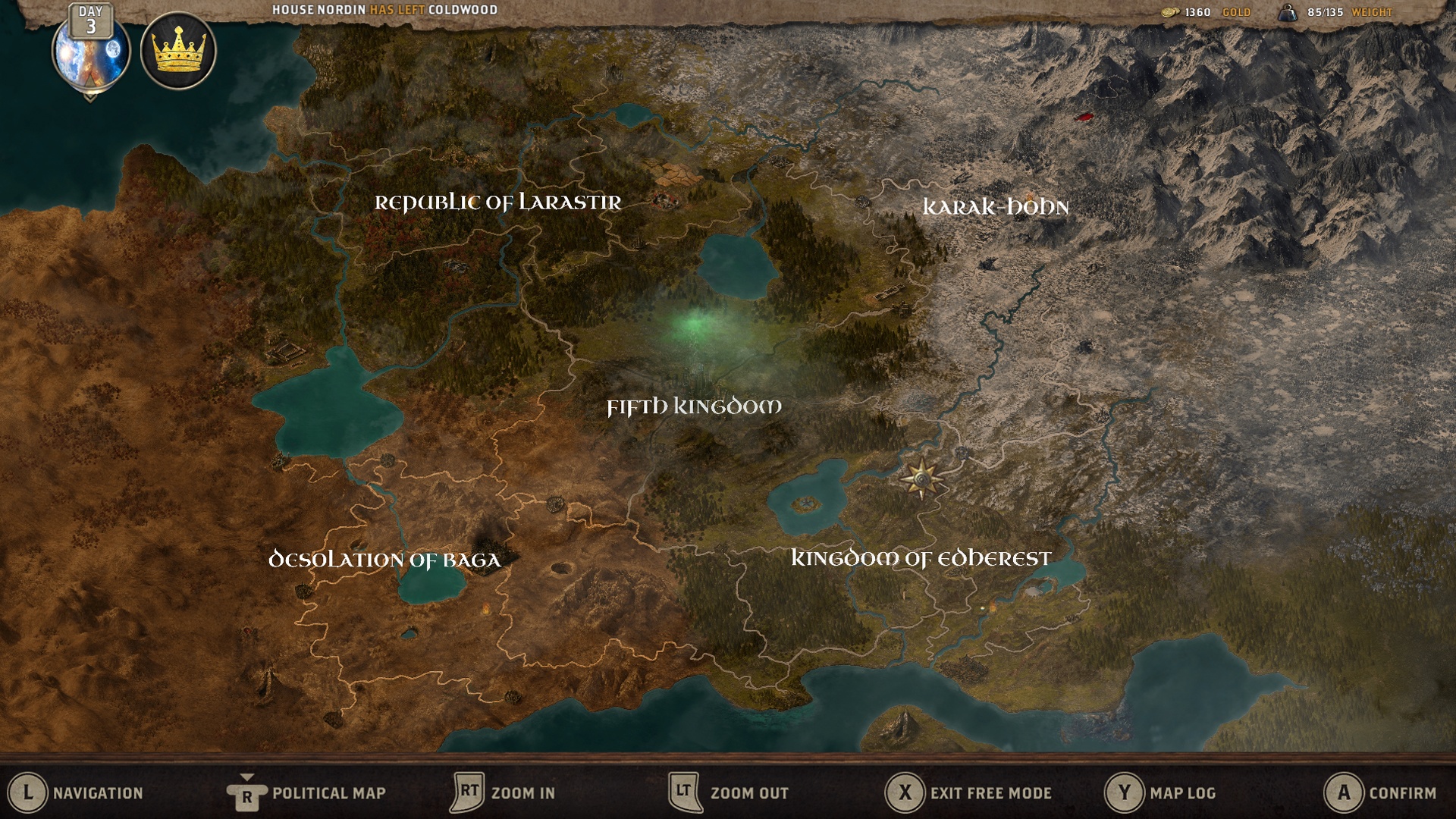Alaloth looks magnificent, like a mixture of Baldur”s Gate and Sacred. Behind the scenery, action-packed battles await – and many problems.
Plamen, the world of Alaloth, is cursed. Two, to be precise. One is the namesake evil god Alaloth, who has thrust the world into a dark age. But the curse we are referring to is called Early Access. Because even though this model has established itself and is especially appealing to smaller development studios, it doesn”t suit every kind of game.
As with beta access and leaked game versions, you can ruin a game experience by playing it too early. Why we had a similar experience with Alaloth: Champions of the Four Kingdoms and why you should still keep an eye on the game, you can read in the test.
Table of Contents
A bit of Dark Souls here …
First of all, we have to clarify what kind of game Alaloth is in the first place. And that”s not so easy. Apparently, it looks like a classic role-playing game in the style of Baldur”s Gate or Pillars of Eternity. You play from an isometric perspective, move through a pretty fantasy world, talk to NPCs along the way, fight nasty mobs and complete quests. But there are two big differences.
The combat system of Alaloth is not turn-based, but reminds you of Dark Souls from above. You have up to four triggerable skills, and can also parry, counter, dodge and run, lure the enemy or stun them with a kick. In addition, there are normal and strong melee attacks. Whether you use two-handed weapons, shield and sword or two blades is up to you.
Since the NPCs also block and counterattack, every fight is a bit of a challenge, which often consists of picking up your feet between attacks and gaining a few metres of distance. In addition, you will always have to deal with bosses that have their own attack set and require an individual approach.
By the way, you can”t save. If you bite the dust, you wake up at a nearby shrine, your equipment loses durability and three days pass in the world.
.. a little board game there
This leads us to the second difference from classic tactical role-playing games. The world is divided into small hubs and dungeons that are connected to each other only by the world map, on which you move like in a board game. So you don”t run with your character from A to B, but abstractly move across a world map while time passes.
This is relevant insofar as in the world of Alaloth in the normal game mode three NPC heroes compete with you for the game goal. This is to track down the four fragments of Vaizmil, a fallen goddess. Only with all four can you complete a ritual to get to Alaloth himself, a kind of Diablo (the Prince of Hell, not the game).
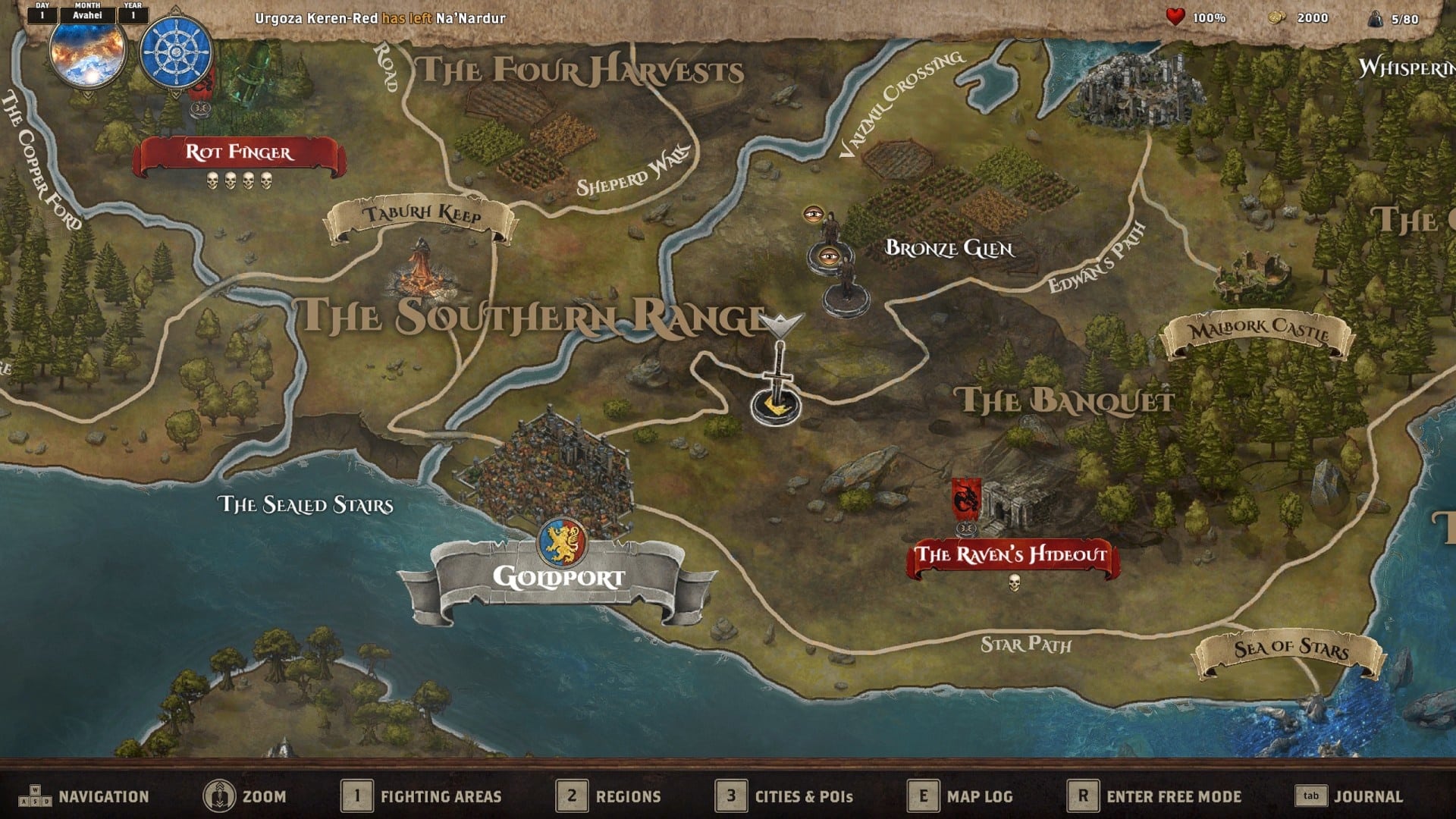
At first, you will only find these fragments in one of the 28 dungeons spread across the four kingdoms (Orcs, Humans, Elves and Dwarves). But once you have one of the fragments, you can lose it again. If you die in a dungeon, the fragment remains there, visible to the other champions. And even in direct combat against them, you can gain or lose a fragment.
World-building and story come directly from the fantasy generator
Are you thinking to yourself, “Hey, slow down first, I want to know more about the world and story!” Then we have bad news. Because there”s not a whole lot to say about it. Alaloth has an extremely generic world, although developer Gamera Interactive originally advertised that author Chris Avellone (Fallout: New Vegas) had contributed to the lore. The reference is now no longer on the shop pages at Steam and Gog.com.
Orcs live in the desert, elves by the trees, dwarves in their halls of stone and humans in the temperate plains. Each corner of the rectangular world is home to one of the kingdoms, with a great castle rising in the middle, where Alaloth has nested.
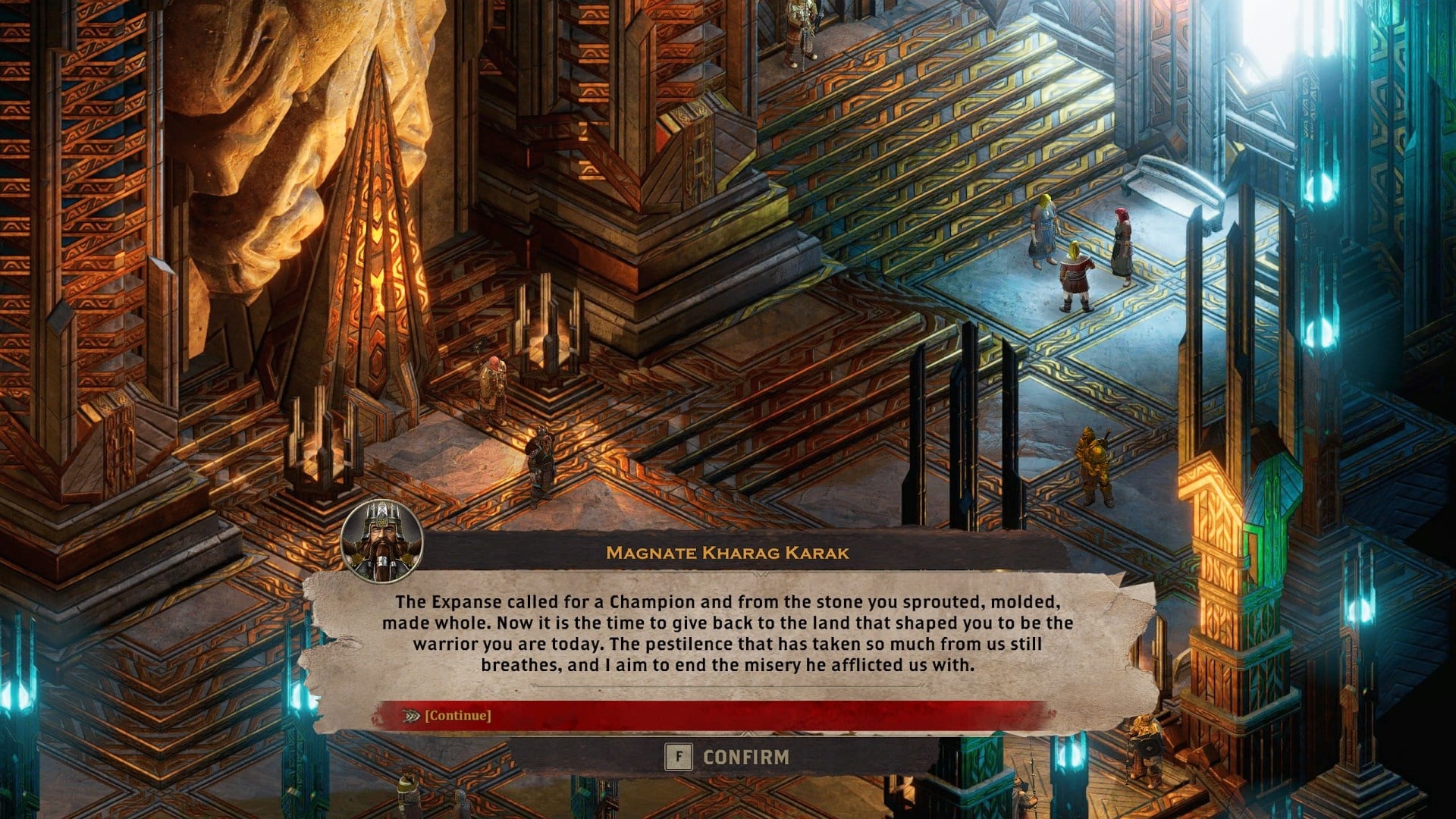
The story (currently only in English) and your mission are correspondingly unimaginative. The gods have fought each other, Alaloth has won and brought destruction to the world. Each kingdom now sends its best warrior to finish off the devilish god – and surprise, one of them is you, which you learn immediately after the tutorial.
And that”s it. The many NPCs in the world tell you even more about the background of the world and its inhabitants, but none of it really catches. Firstly, many of the small text passages are quite uninspired, and secondly, you simply can”t get much immersion out of such a constructed and clichéd world.
Go, kill, collect, come back!
The quests are much the same. They all consist of the most boring “bring me 50 goblin heads” missions you can imagine. Sometimes the accompanying texts are at least quite nicely written. In the best mass-instead-of-class manner, there are hundreds of them, so that you lose track of where to do what in no time at all.
Alaloth consists to a large extent of going to one quest hub after the other on the world map, walking around there for a few minutes and then returning to the exit. You repeat this several times with each hub, because you also have to return to your quest givers.
Depending on whether you enter a place during the day or at night, different characters will be waiting there. Unfortunately, the game doesn”t tell you enough about whether quest givers are waiting for you and in which instance. You can only change by sleeping in the tavern or leaving the town and waiting a day (which is quite quick).
As long as you don”t fight, Alaloth sometimes degenerates into mindless running from A via C to B and back again. And then the same again with Night-A via Night-C to Night-B.
Pretty world seeks finished game
After all, the world looks really pretty in the process. The oldschool look is lovingly designed and fits wonderfully to such a classic fantasy world. The fact that some set pieces appear again and again, the music repeats itself a bit quickly and the voice output is still almost completely missing is something we let pass in the course of Early Access.
What should not happen, however, even in Early Access, are bugs that destroy the save state (get stuck in the game world), freeze an entire dungeon (all enemies stop) or give the player a different skillset after loading.
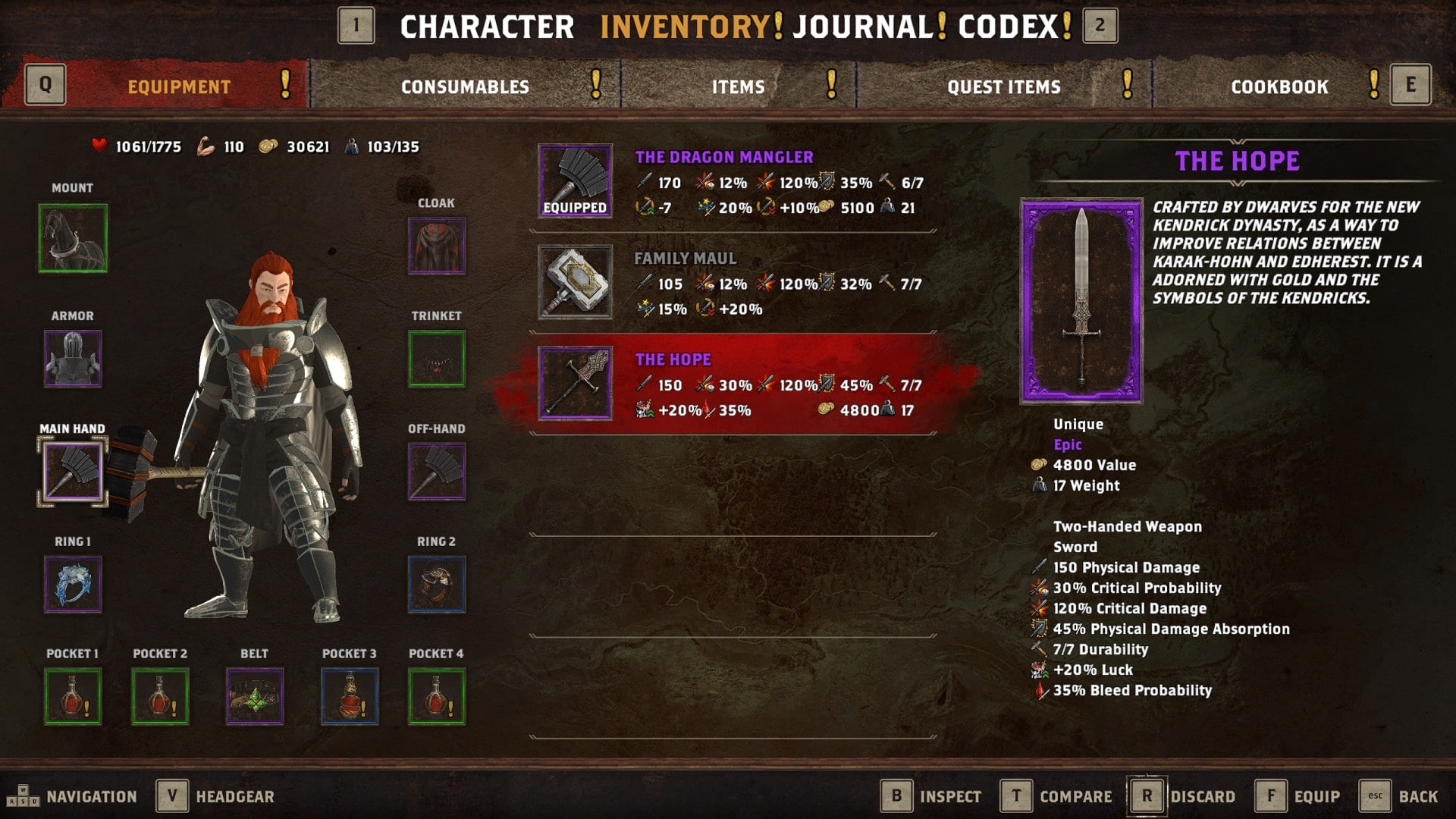
Also unfinished is the crafting system, which so far remains largely useless because you get all relevant equipment through quests or the loot at the end of a dungeon. Accordingly, exploring the game world is limited to finding quest givers. You don”t need to hope for valuable treasures along the way.
The combat system carries the game
We realise that this description sounds like a total failure so far. But interestingly enough, Alaloth is not a failure. Despite all the shortcomings listed, there is a fun game hiding under the unfinished bonnet.
Working through the world with its dungeons is satisfying in its own way. The battles still lack a bit of balance (some skills are too strong) and the companion AI could be better (you can use up to two companions per battle, which can theoretically also be human players in LAN mode).
Despite this, the real-time combat system with Dark Souls leanings does the sometimes overly rigid and tedious genre standards good. Especially with larger hordes, however, the whole thing often degenerates into a hopeless mess. The fights against individual enemies are all the better for it.
Especially in the case of very powerful bosses, you get that familiar Dark Souls feeling when the healing potions run out, you only need one more hit on the big mob, then move the wrong way once – and your slaughtered character wakes up in front of a death shrine with a curse on his lips. The quality of Alaloth shows when you don”t think about quitting at such moments, but desperately want to kill this stupid monster before you go to bed.
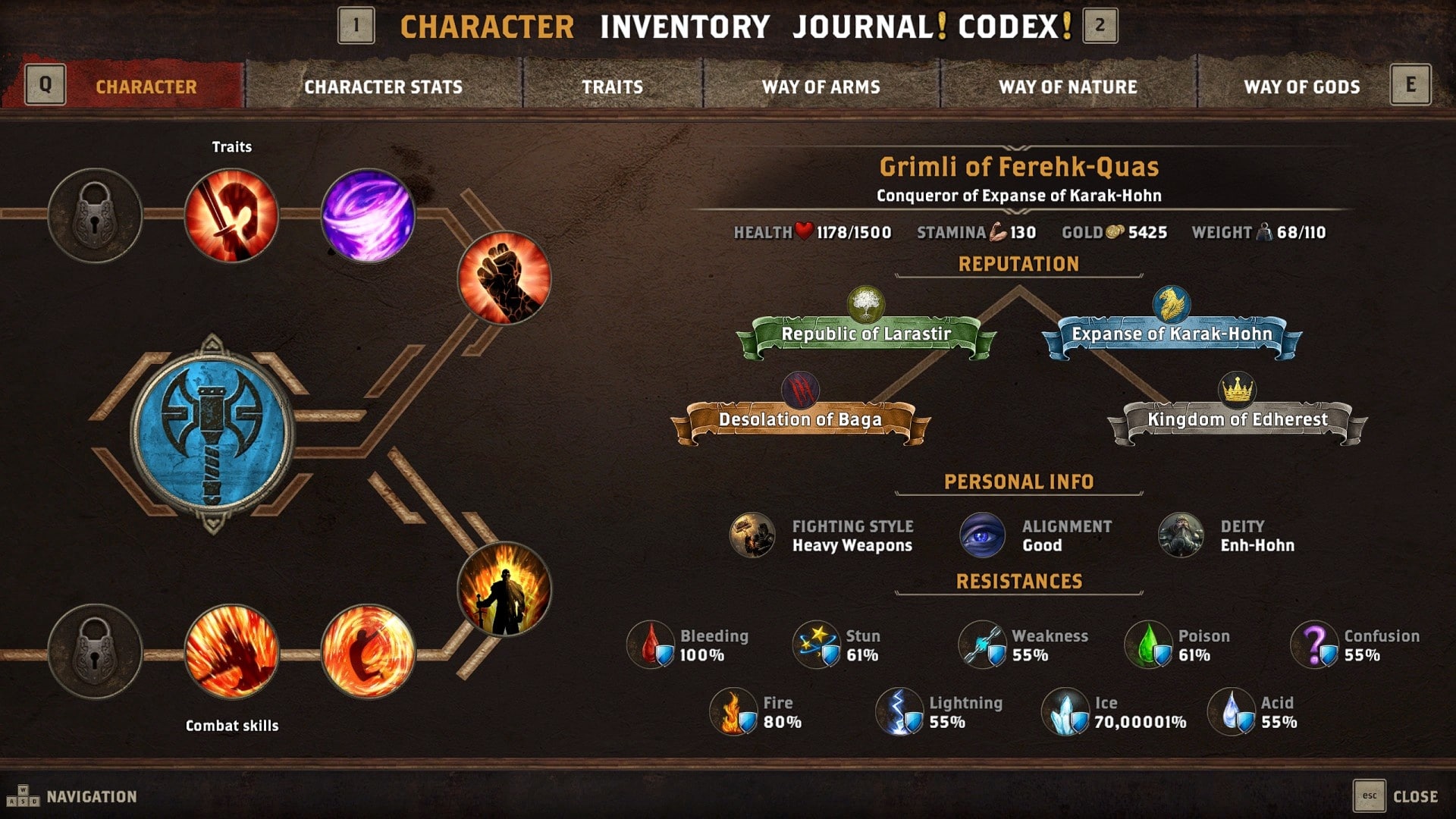
But aside from those moments, Alaloth isn”t ready to be played yet. Bugs and missing content are too noticeable, and gameplay and immersion suffer as a result. At the same time, an action role-playing game like this is probably not a game that many people will play through again (in contrast to strategy games, for example). Therefore, we recommend to ignore the Early Access and wait for the real release.
Preliminary rating box
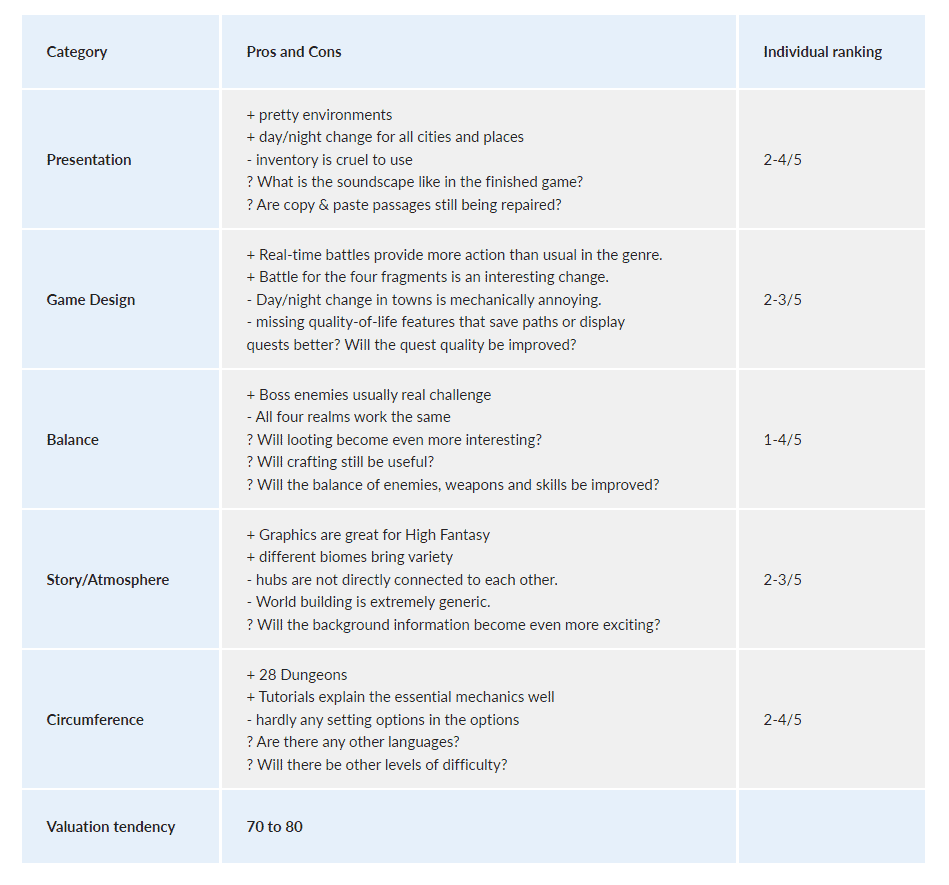
Editorial conclusion
Imagine playing a half-finished Dark Souls. That sounds awful, doesn”t it? Because in games like that, everything has to fit together to create a spark: enemy design, combat balance, lore and atmosphere. Playing such titles too early ruins them. Because unlike a strategy game, at least fans will start all over again at the time of release, when they already know the essential building blocks of the game and its story. And this is also the case with Alaloth.
The ideas of the game are fascinating: more action in the battles, a board game-like progression mechanic and a bit of role-playing on top. It not only sounds unique, it also plays like it. But in its current state, there are simply too many small cogs missing in the big gear, so I don”t recommend buying it. Instead, you should take another look at the game when it is released. Because then Alaloth could really be worth it for only 25 euros.

